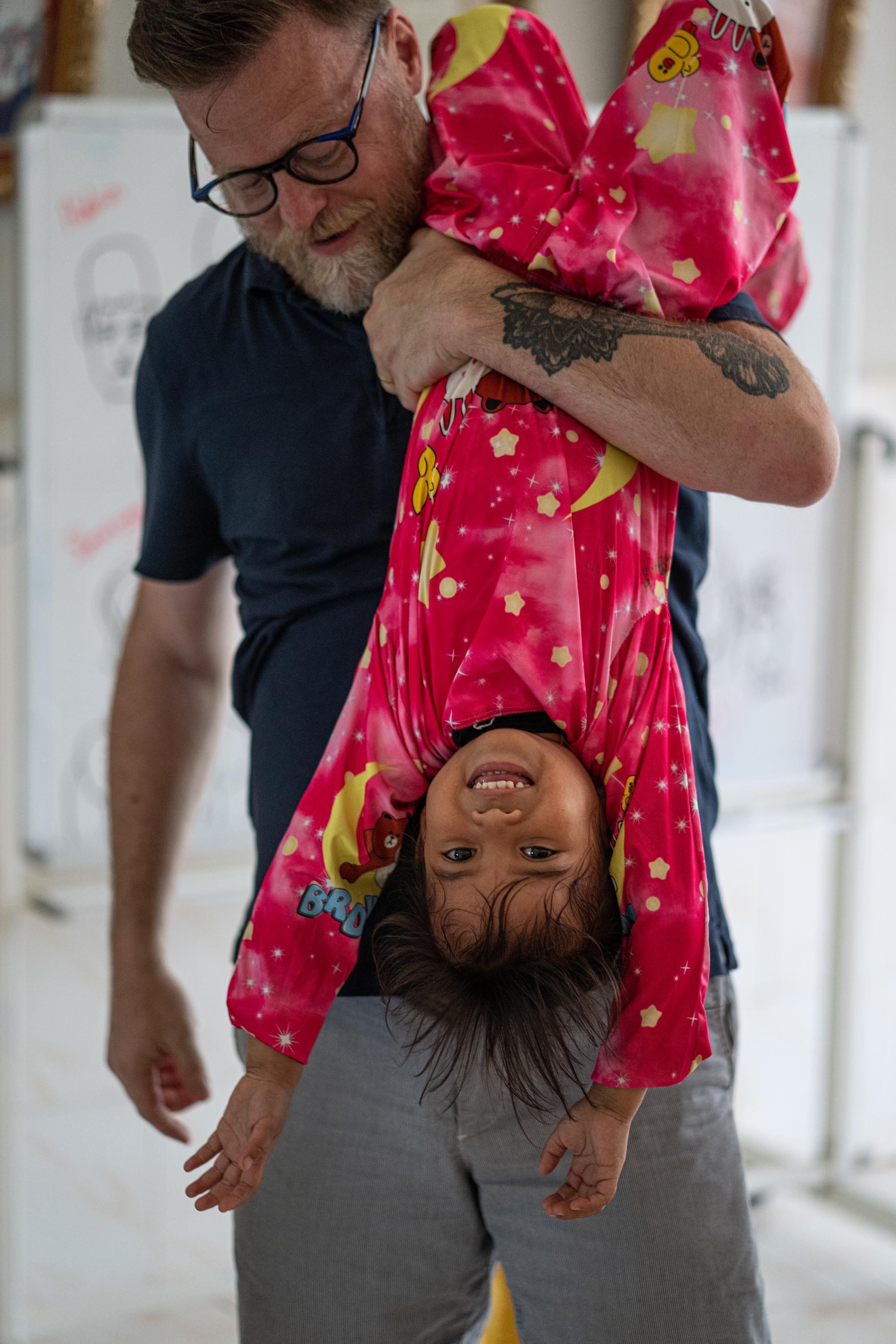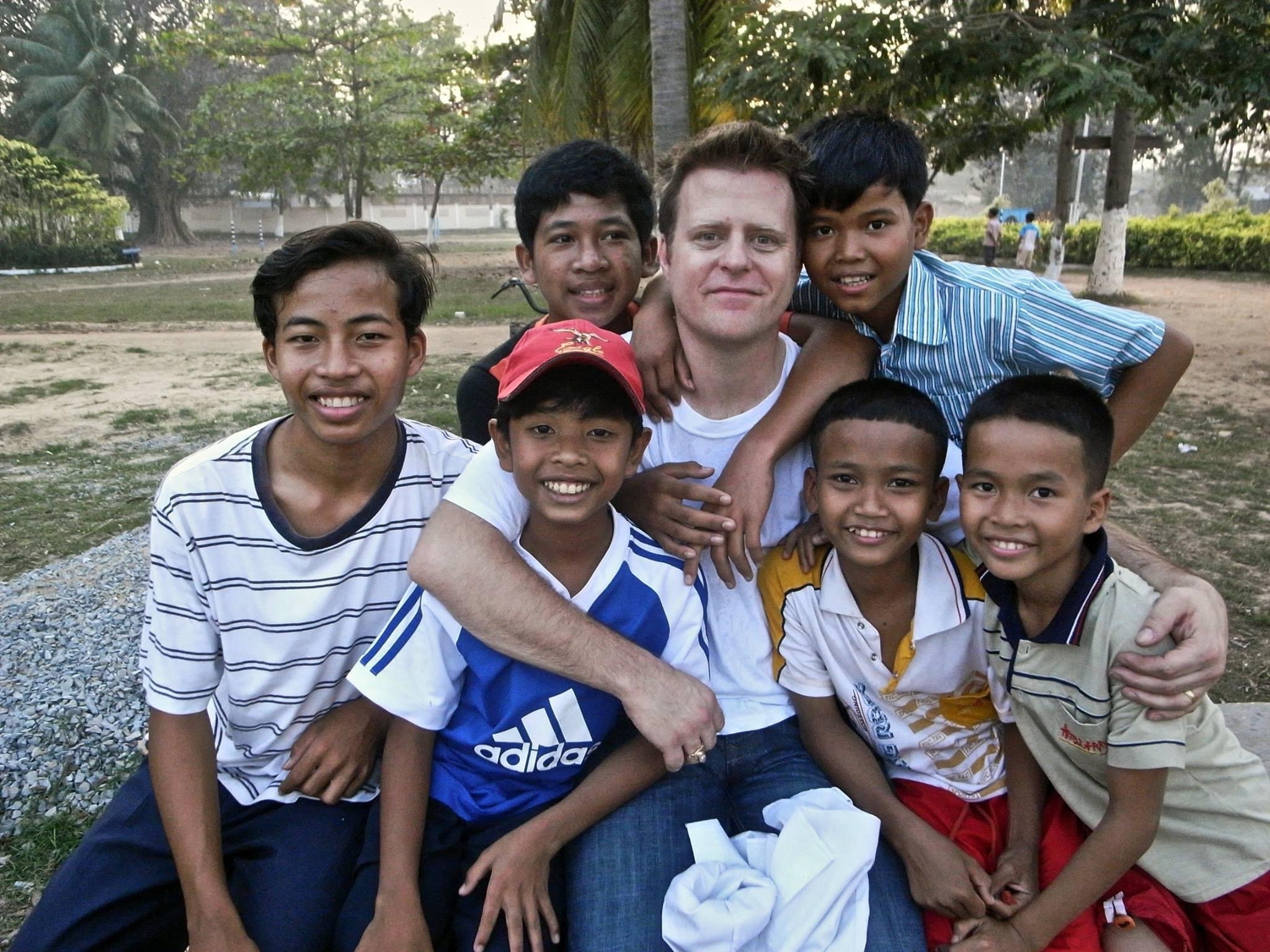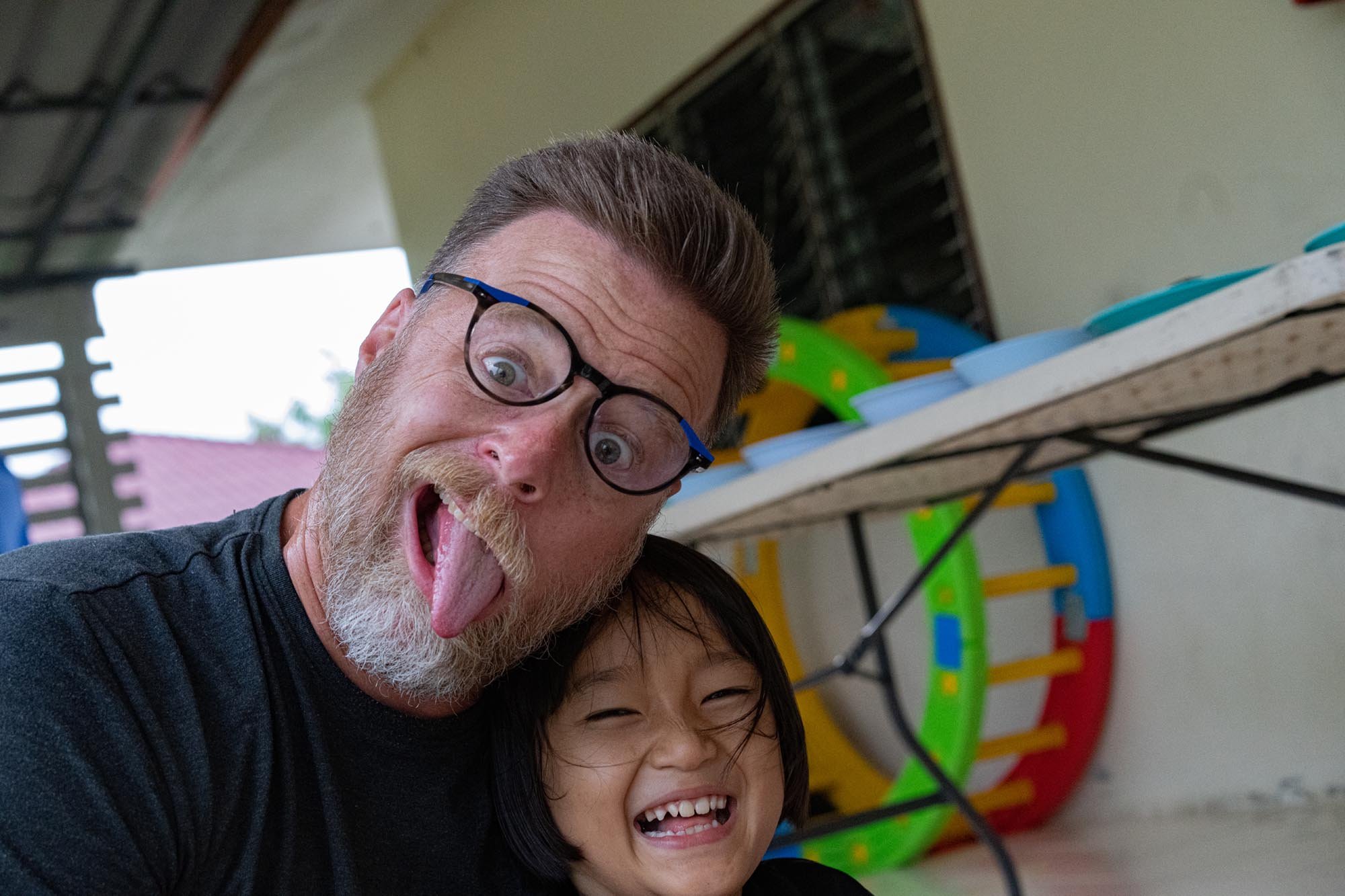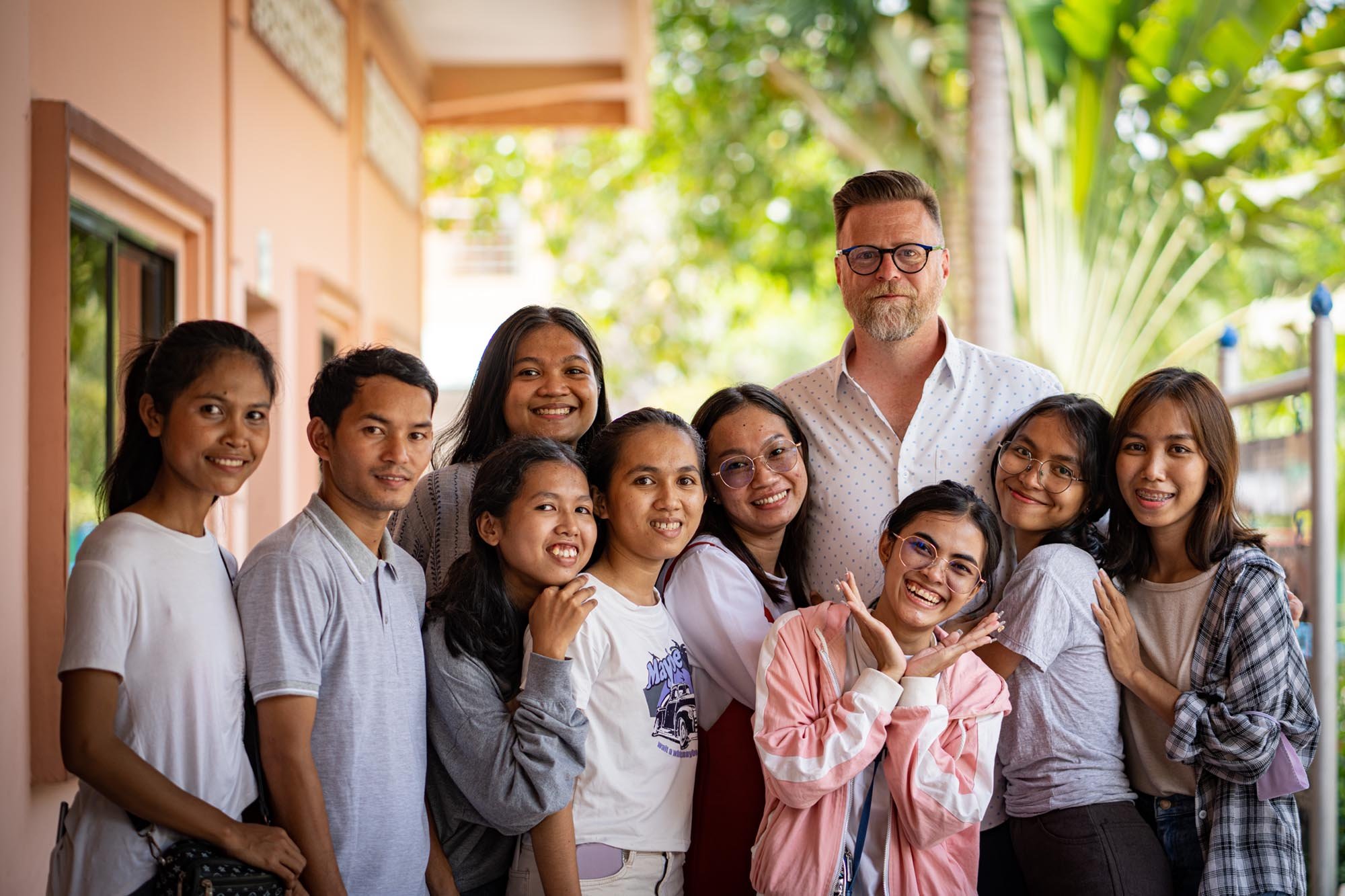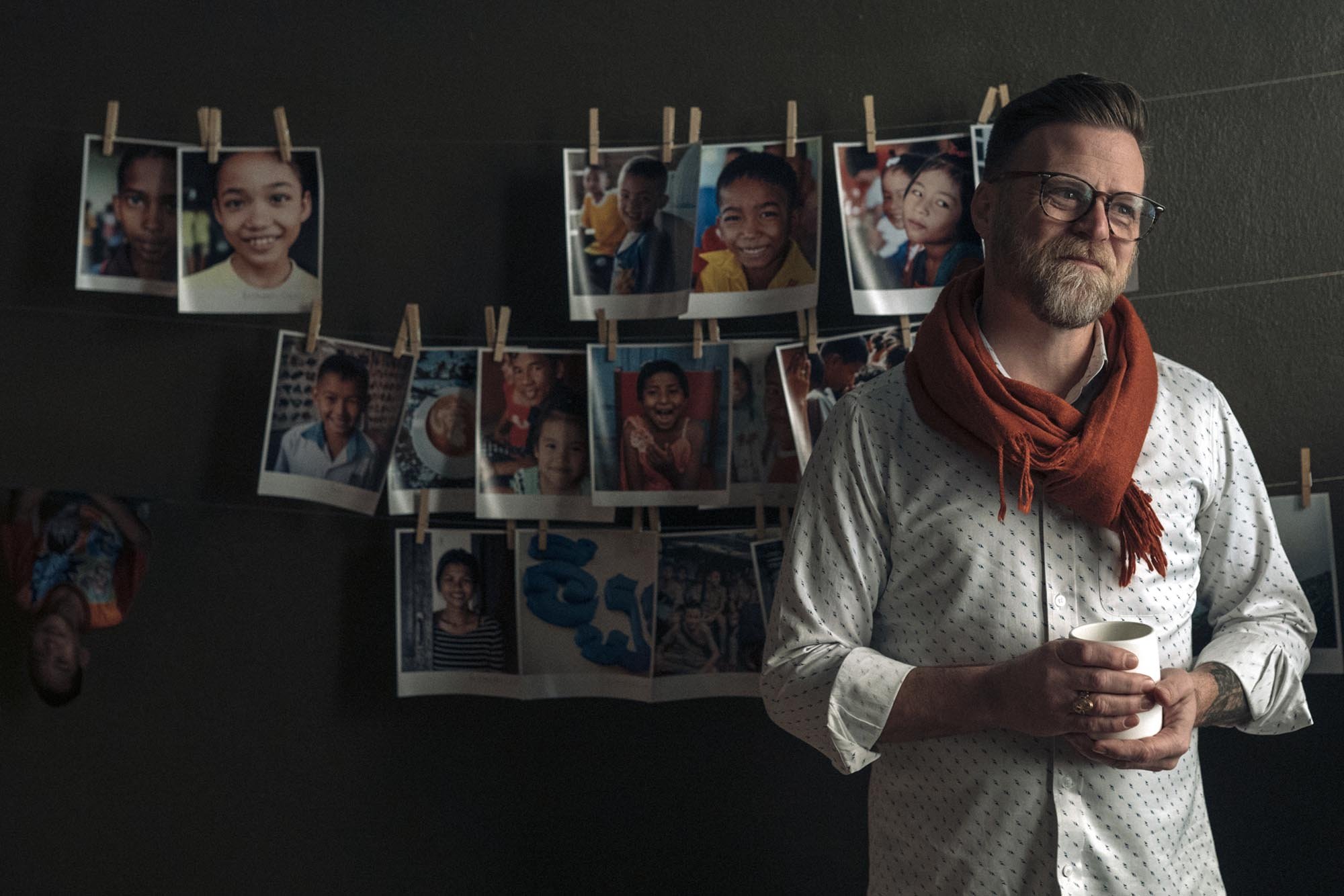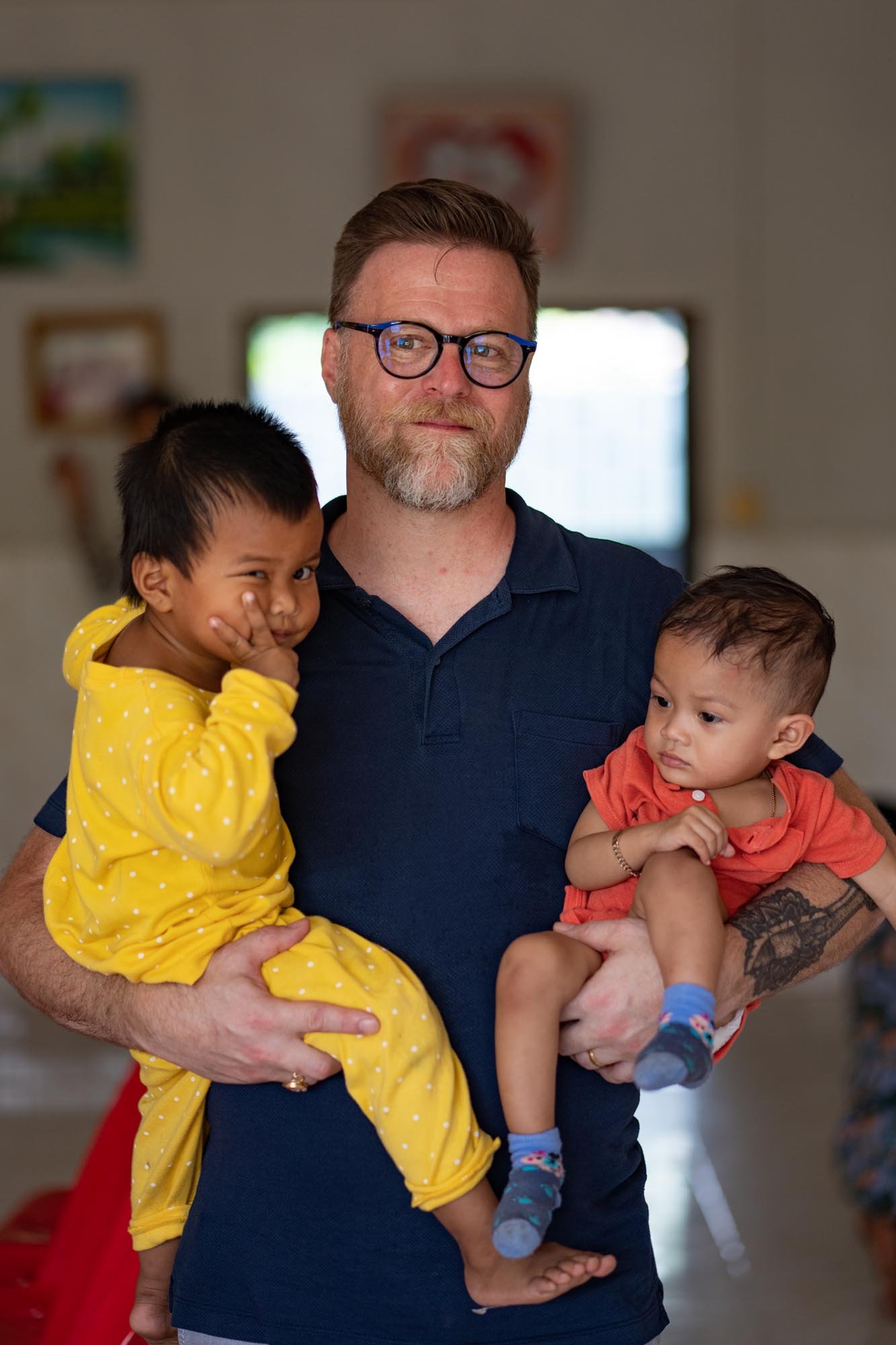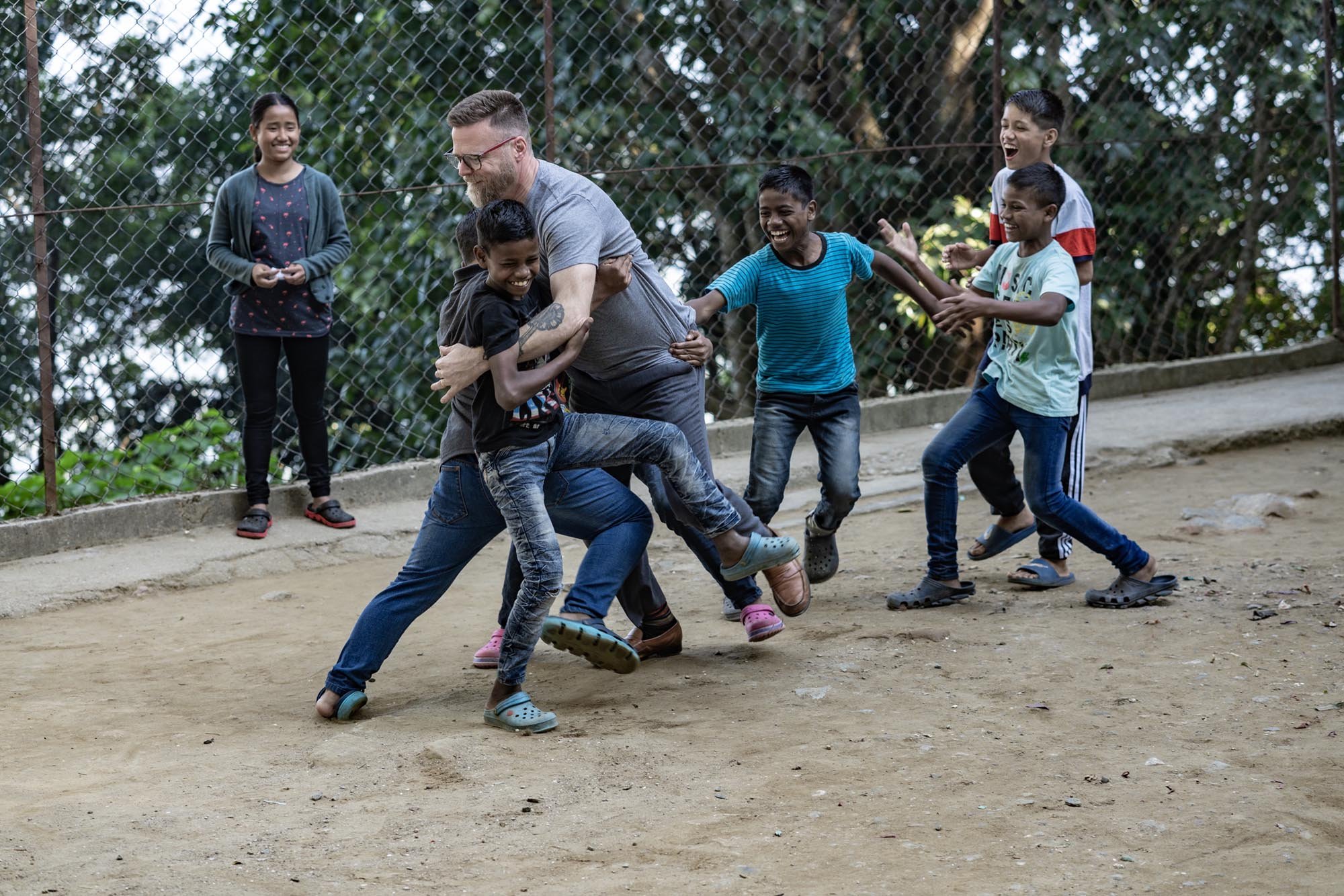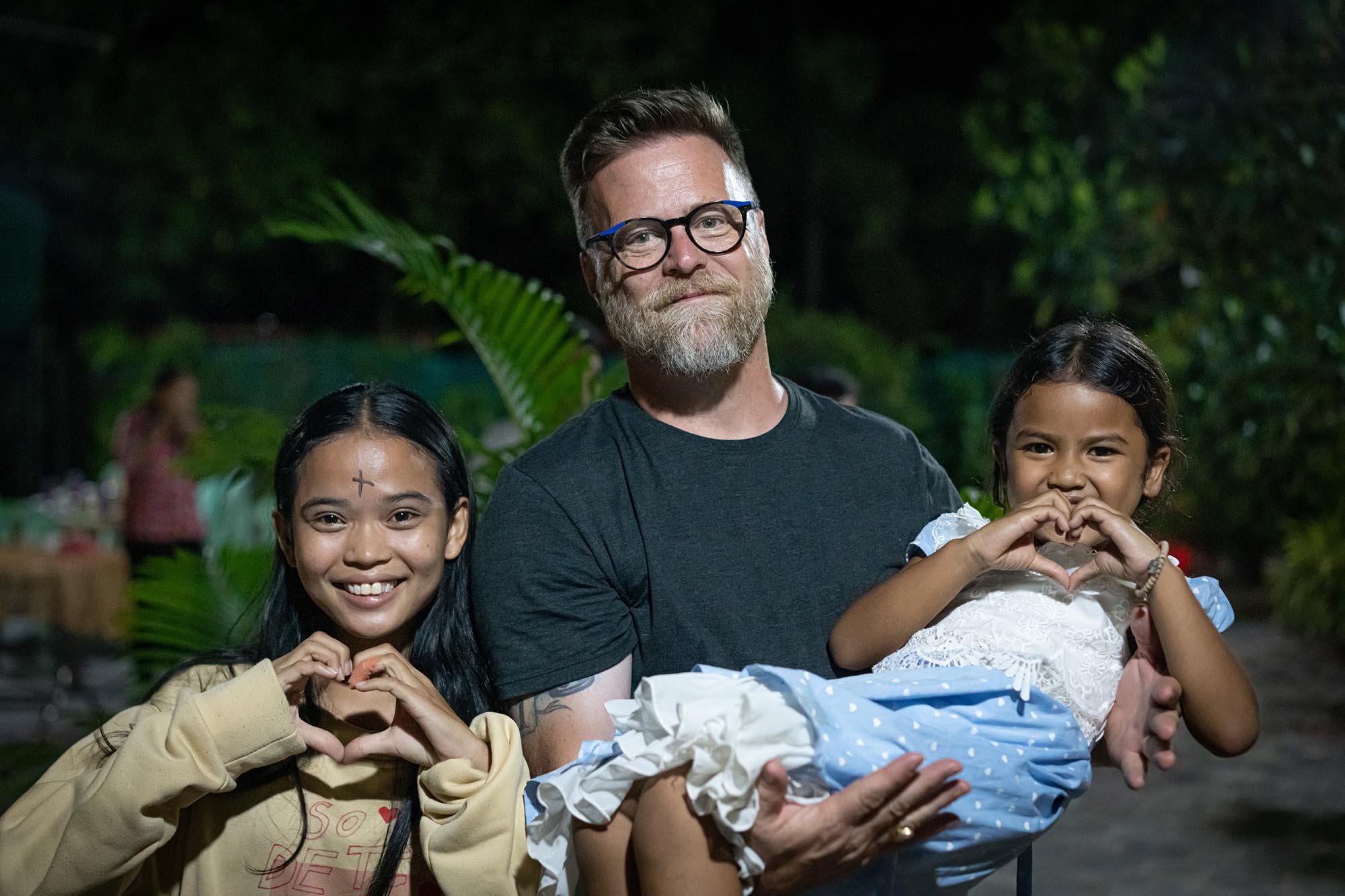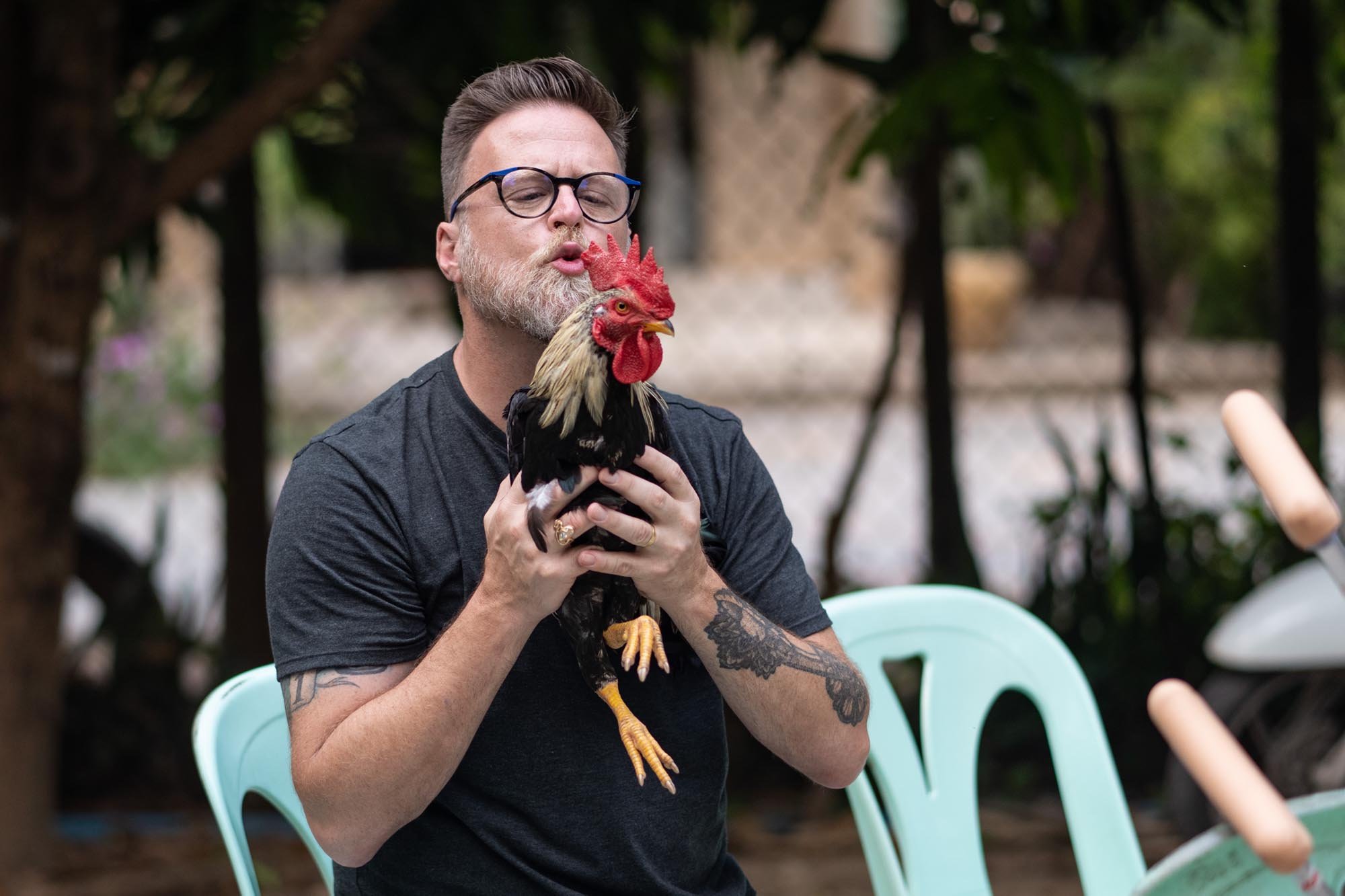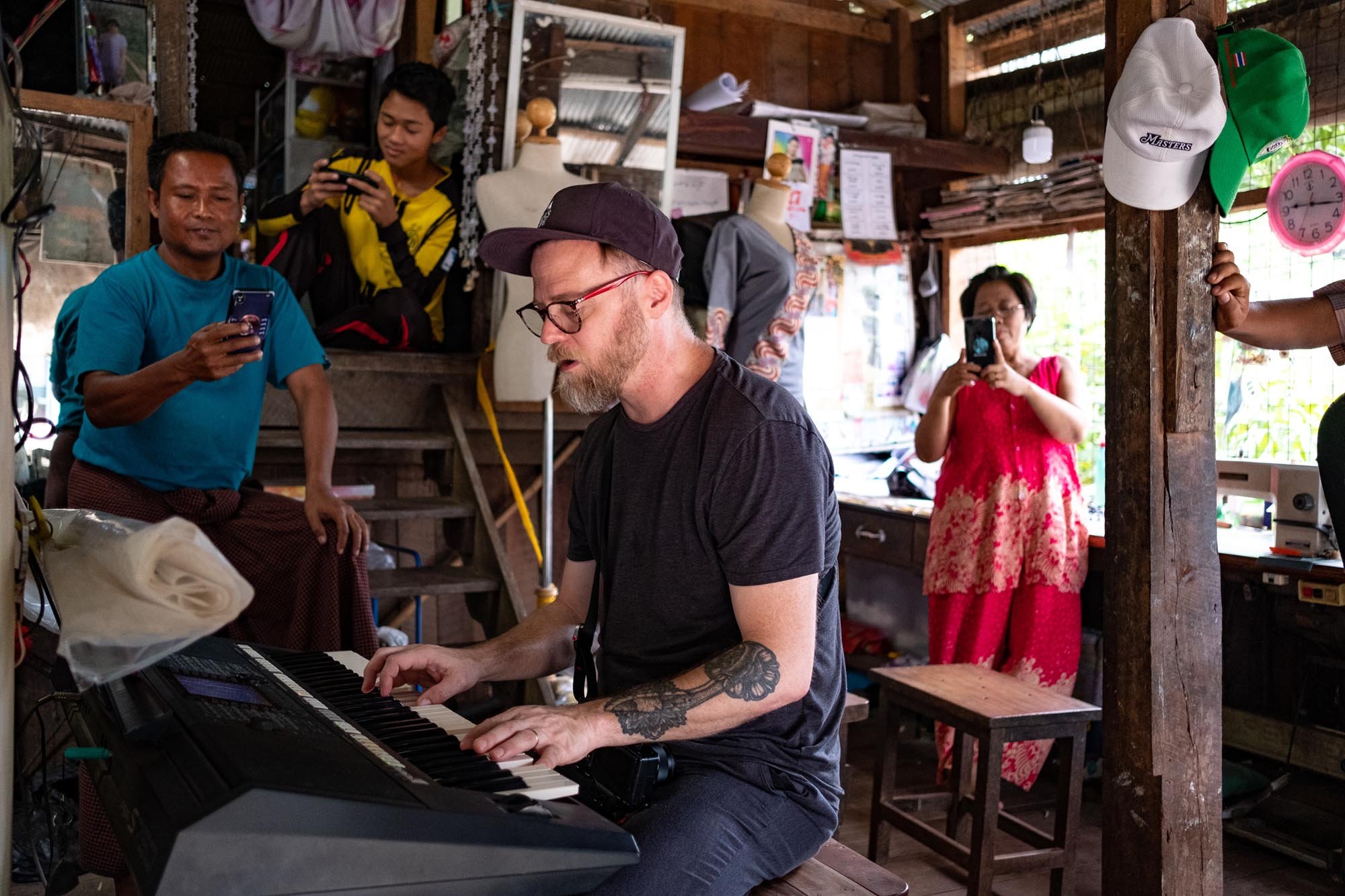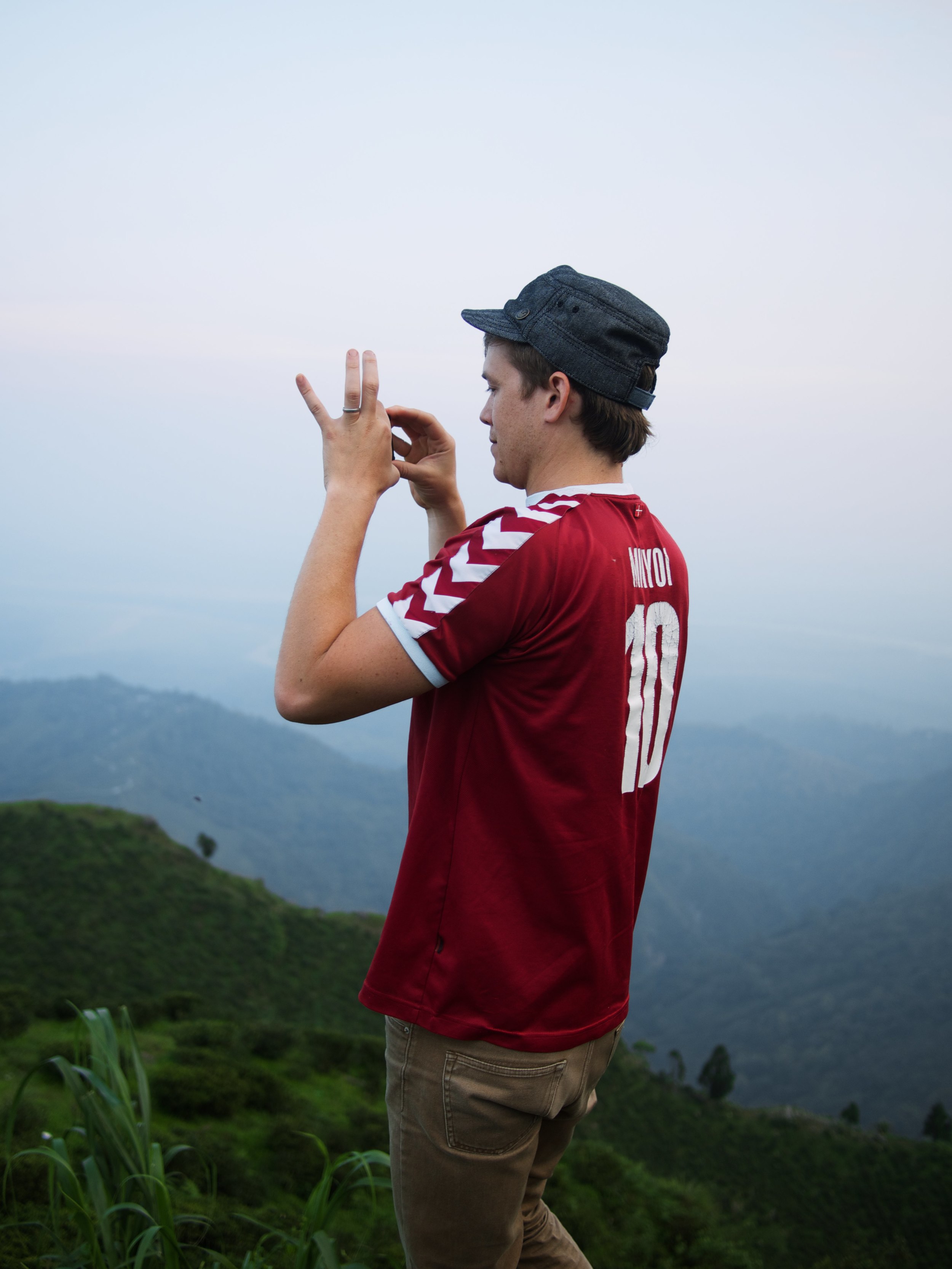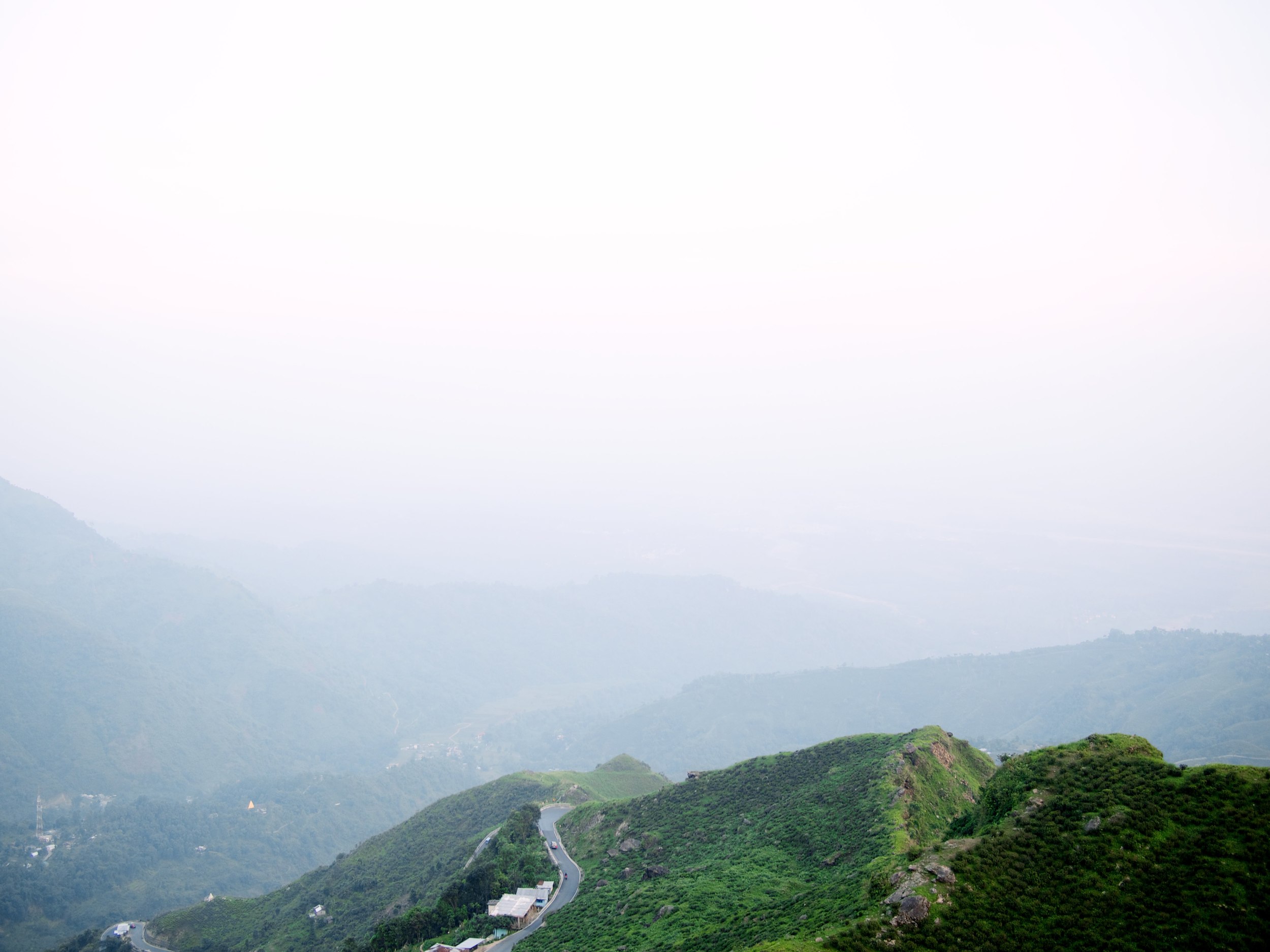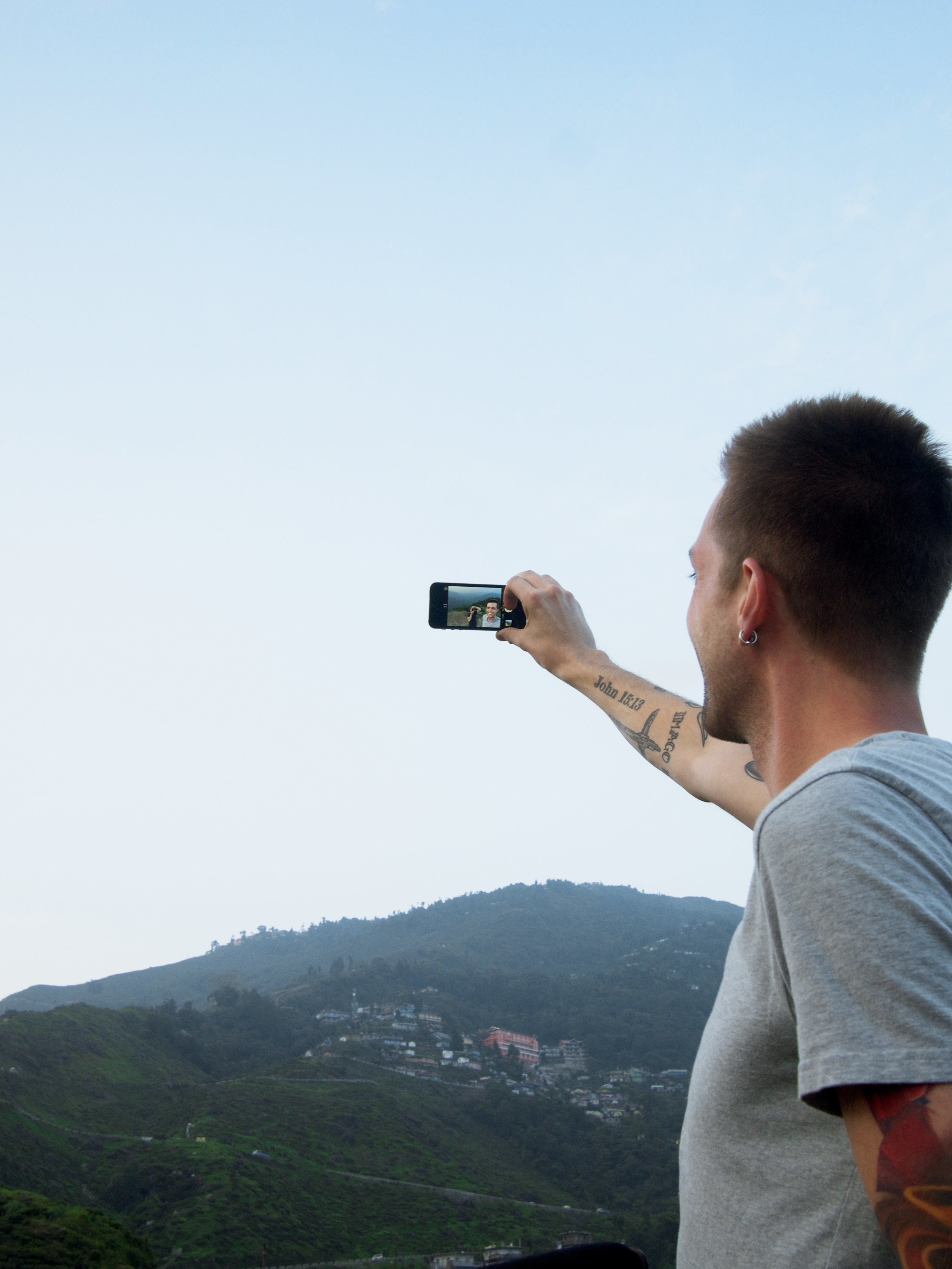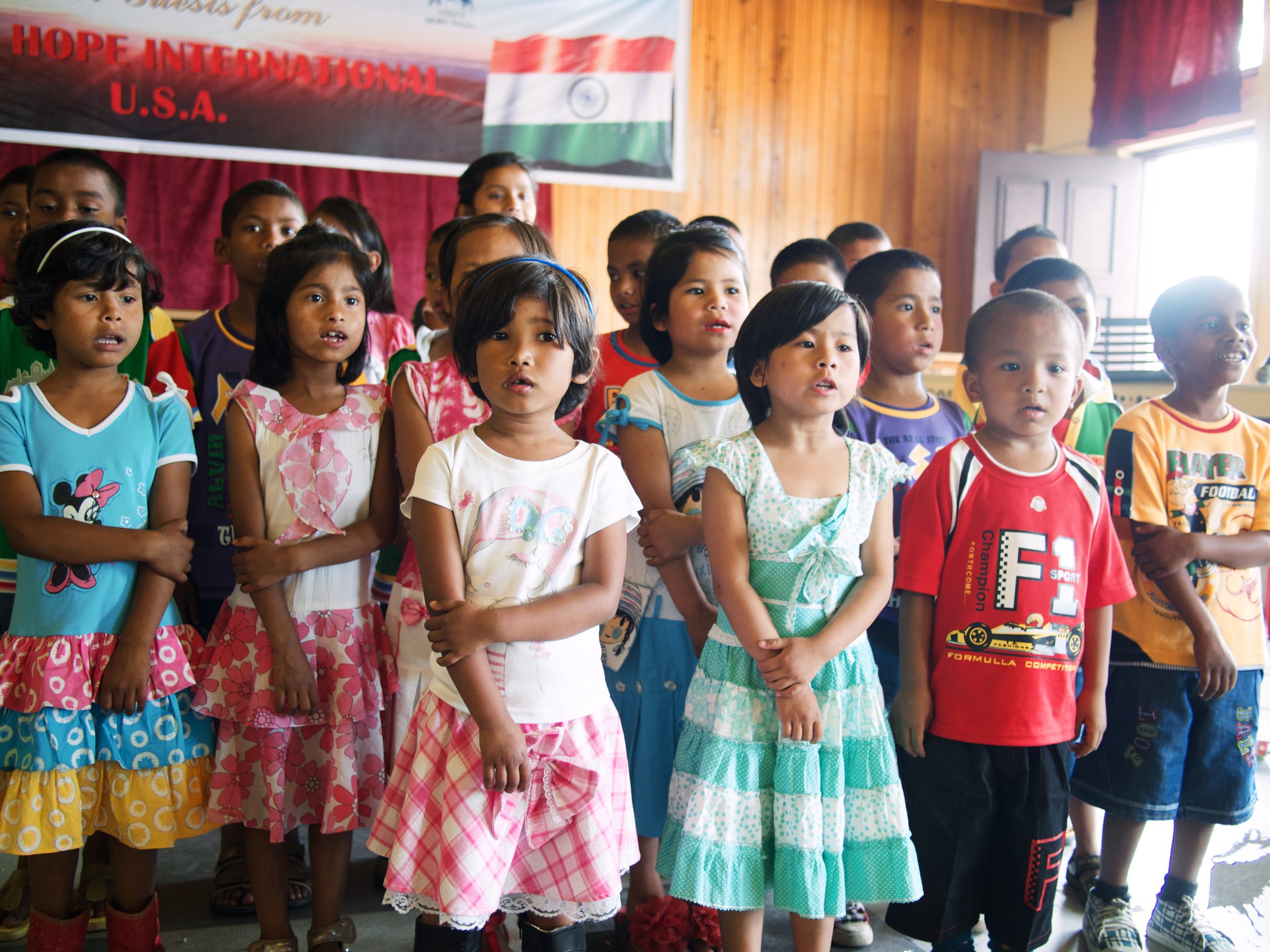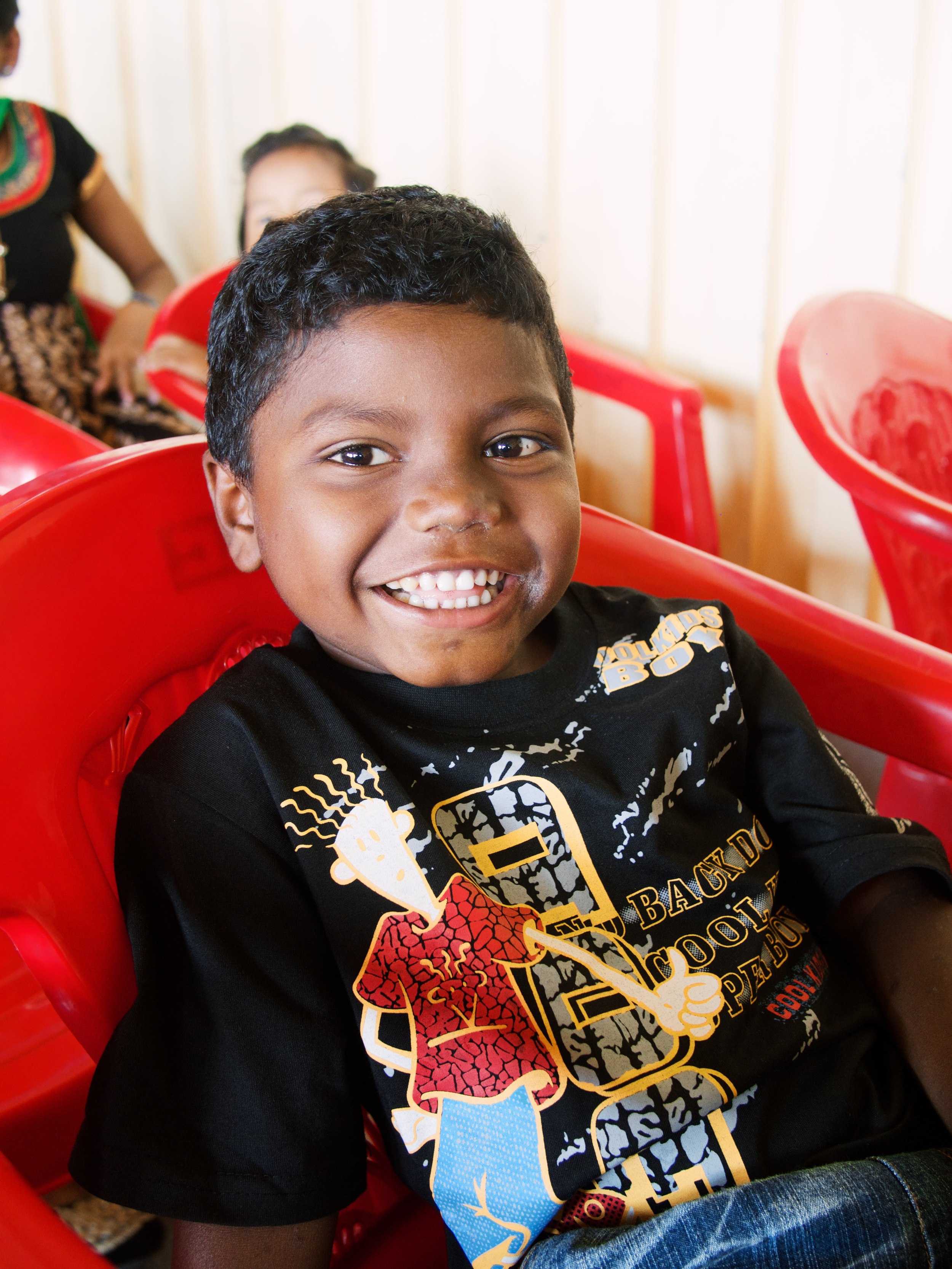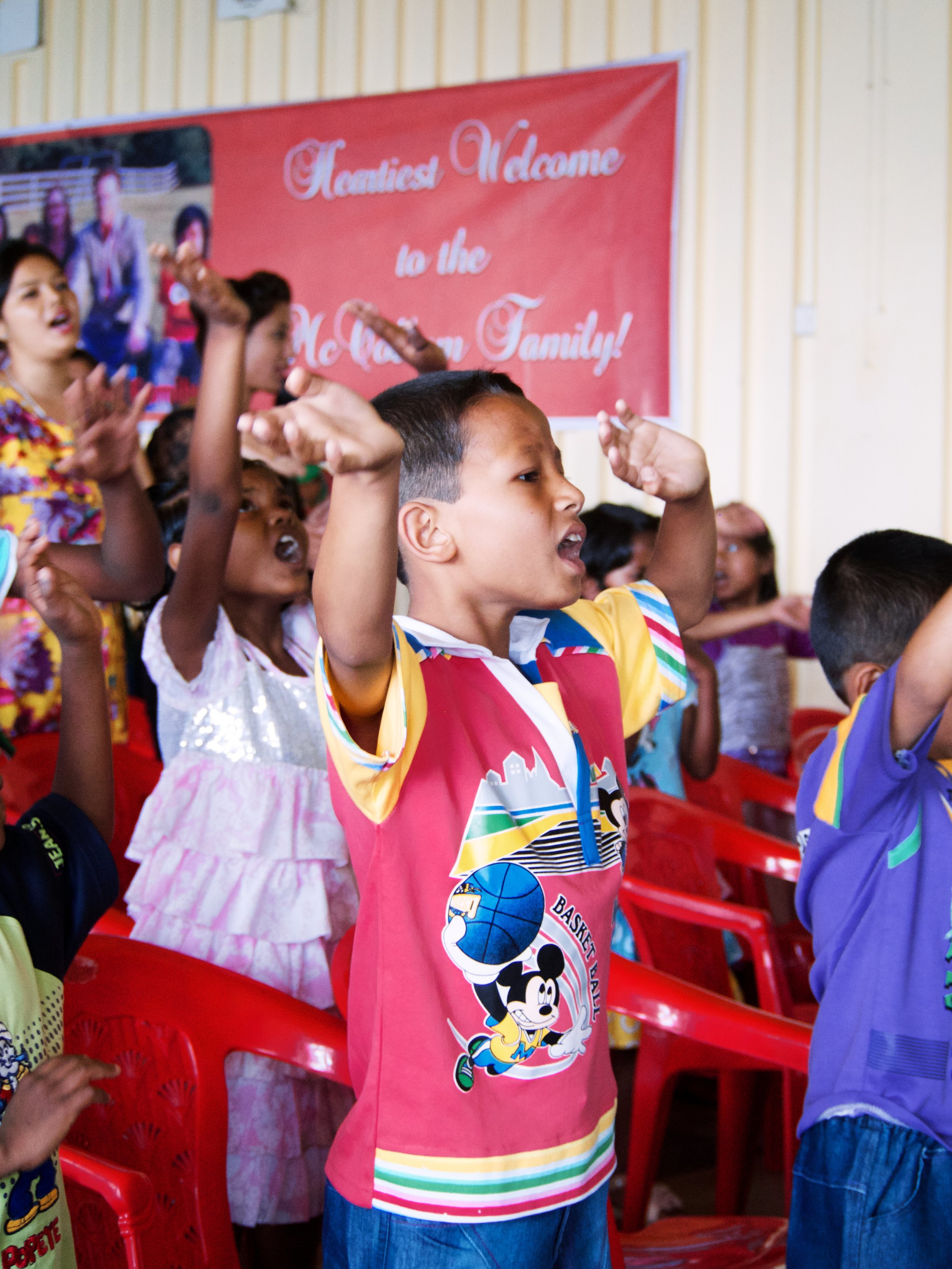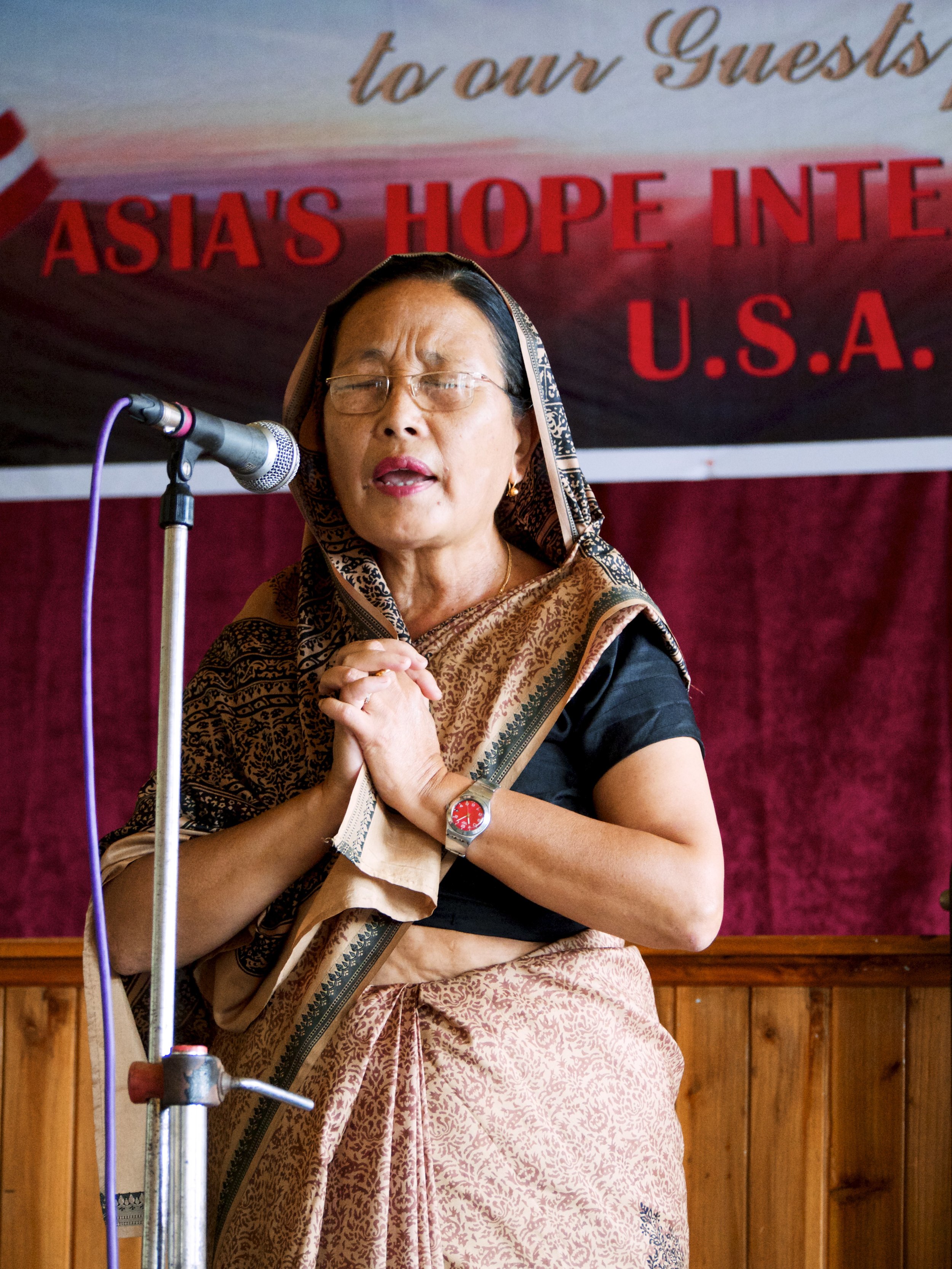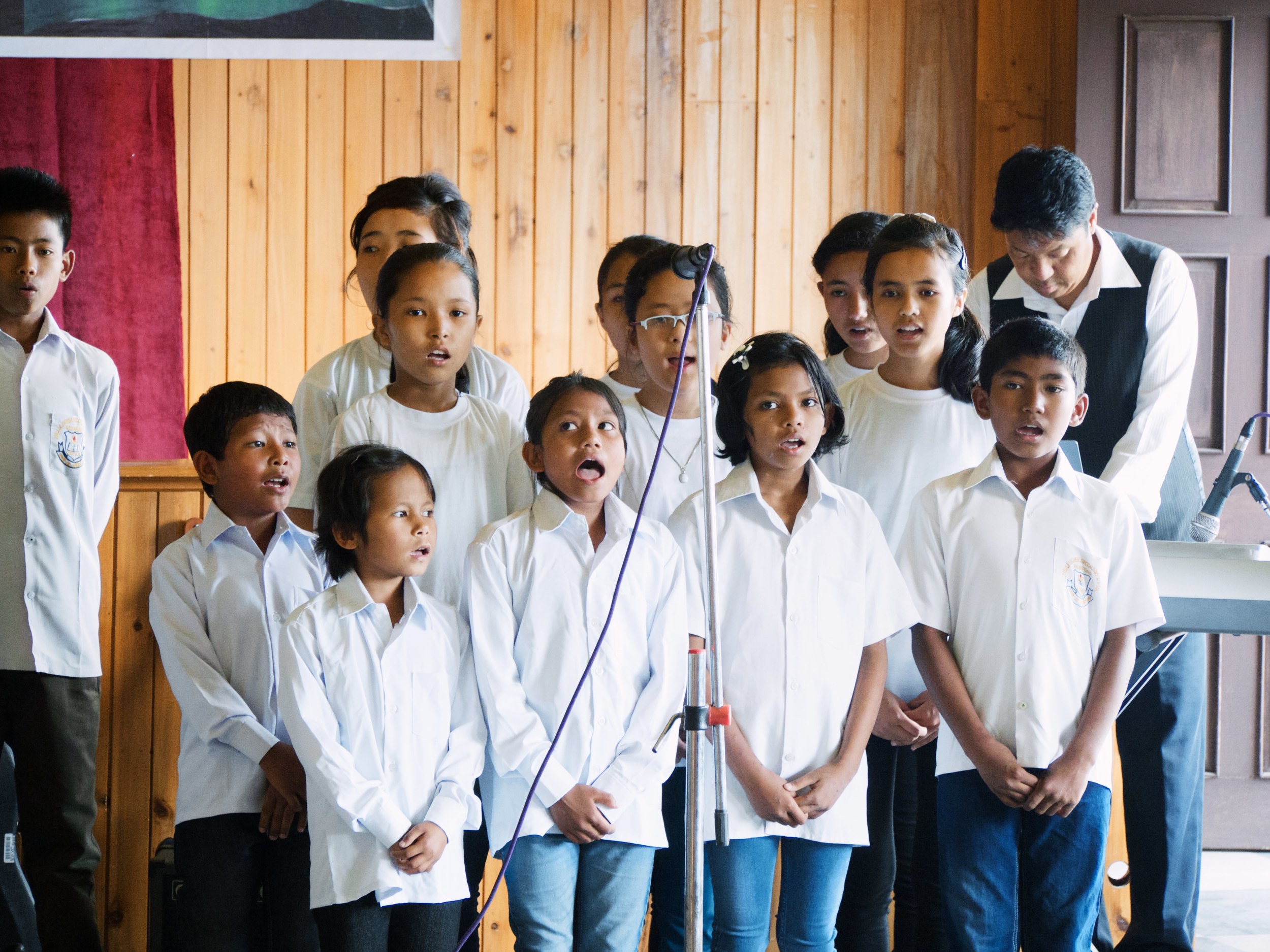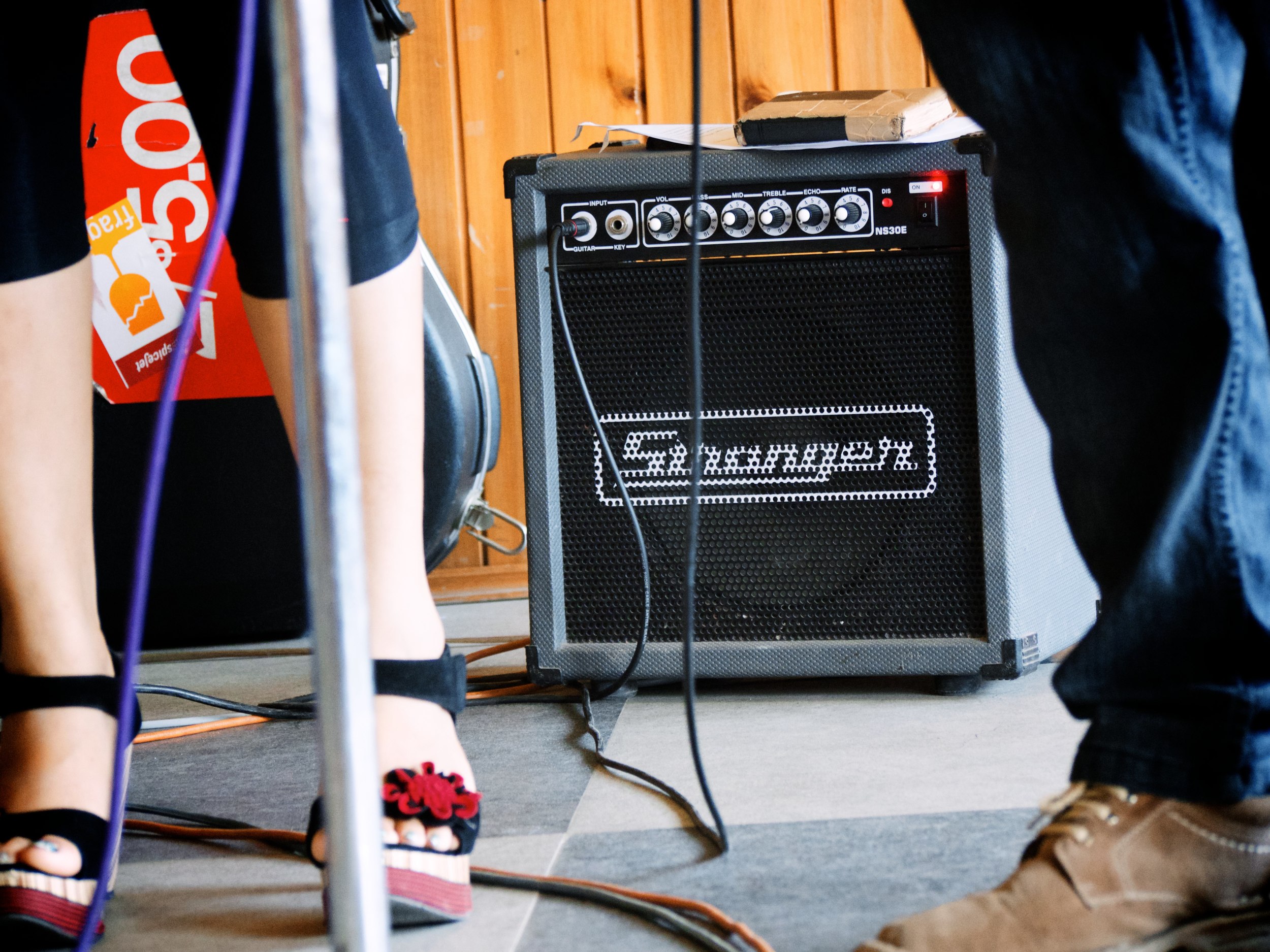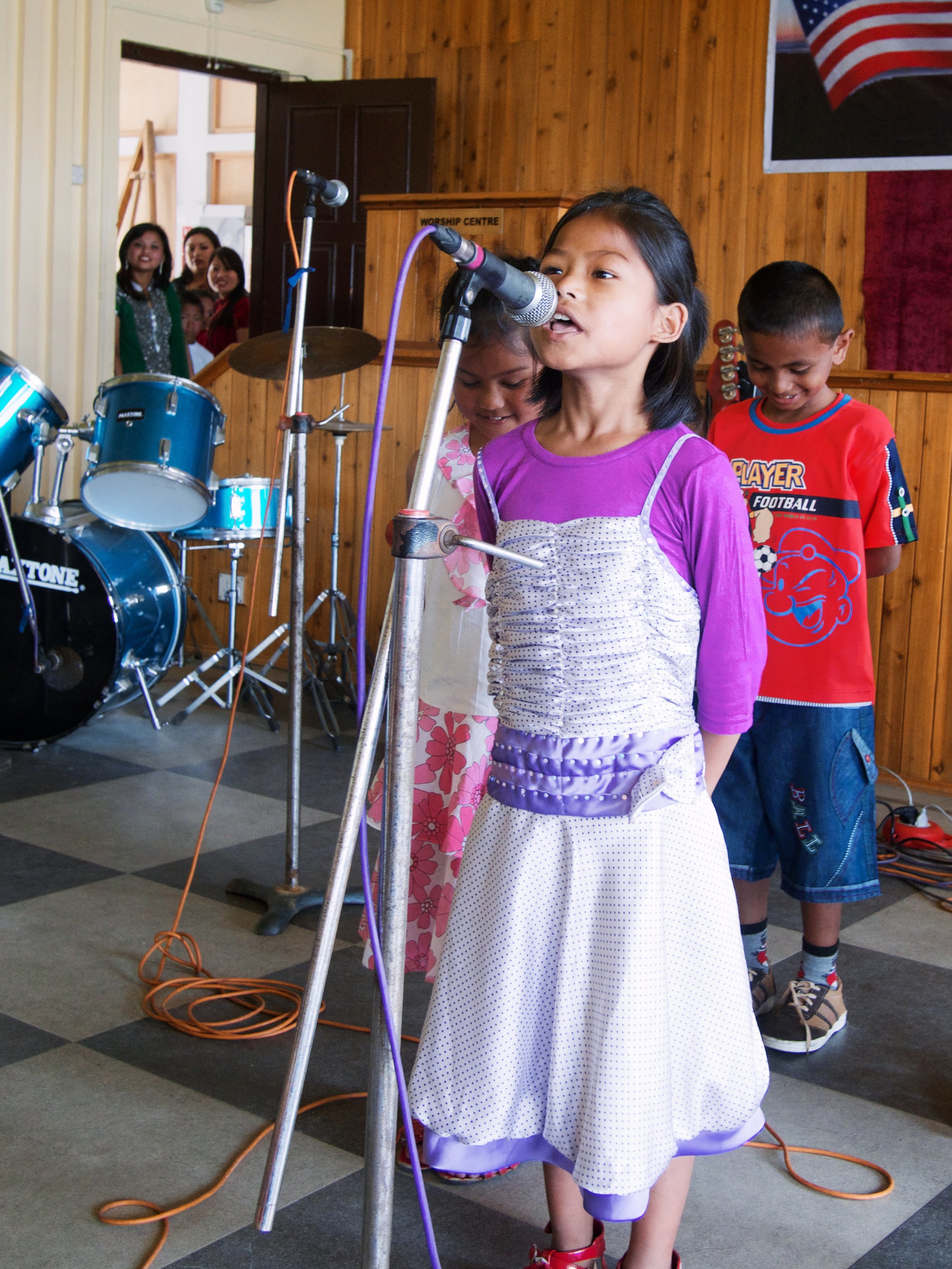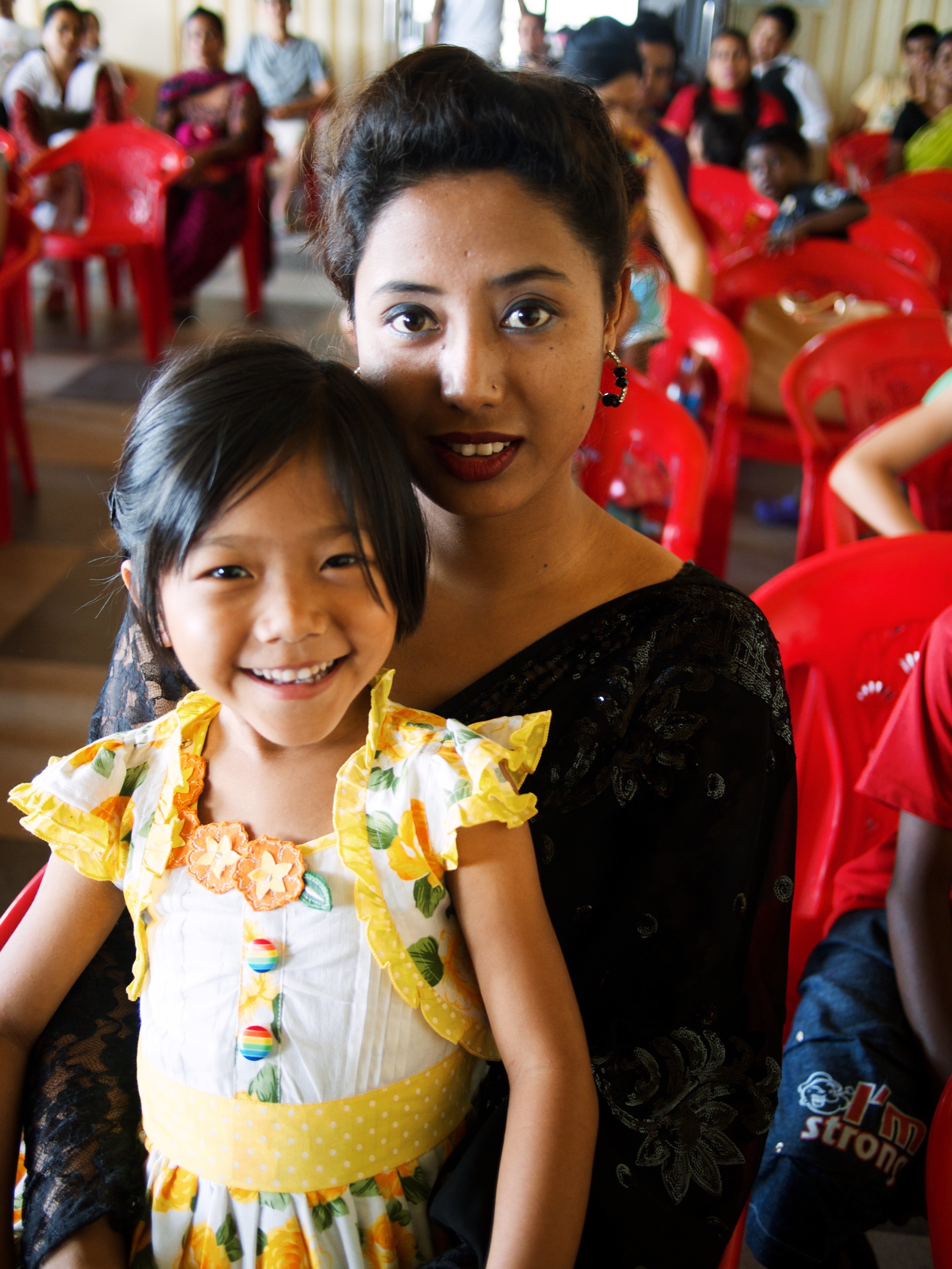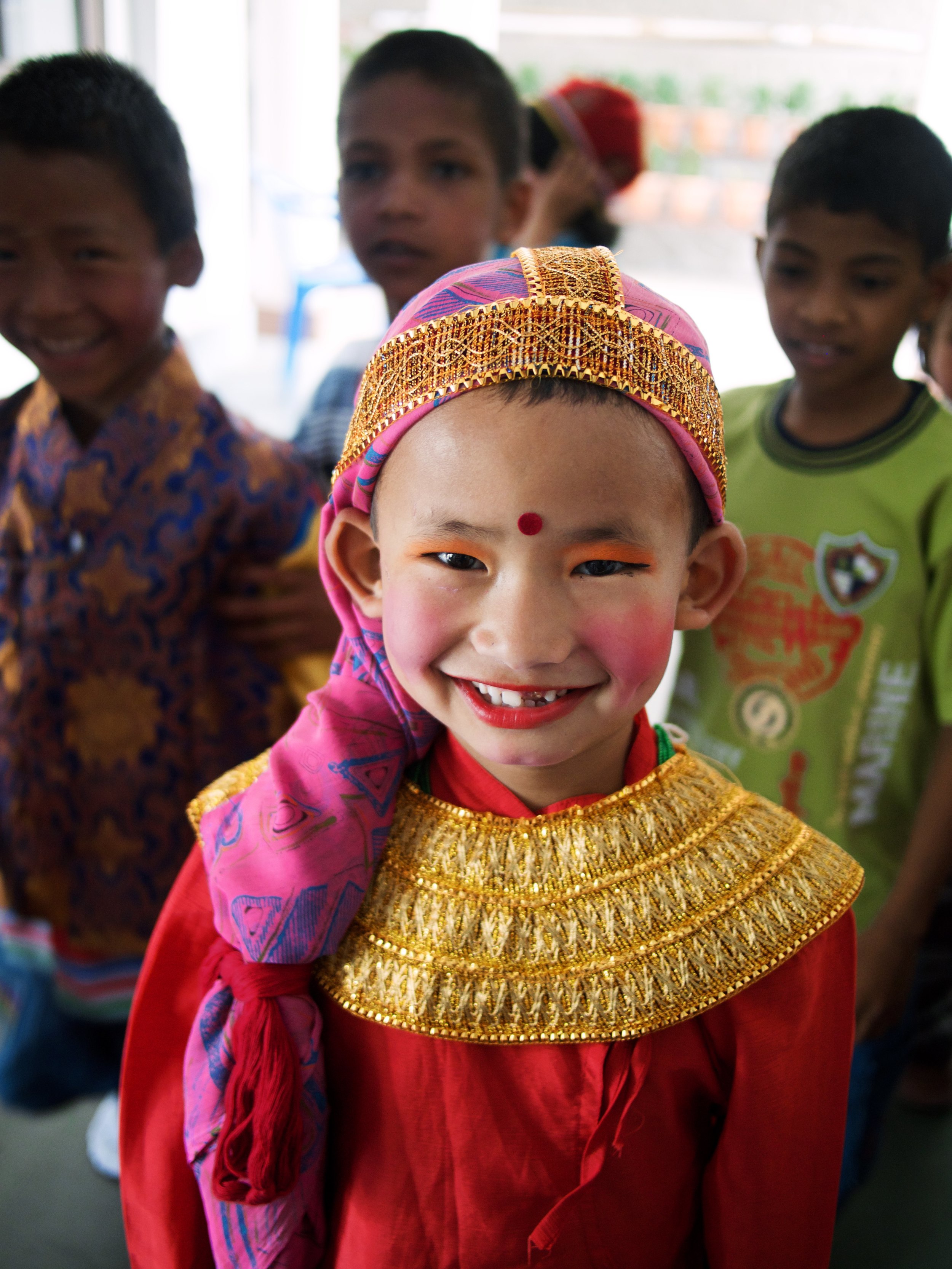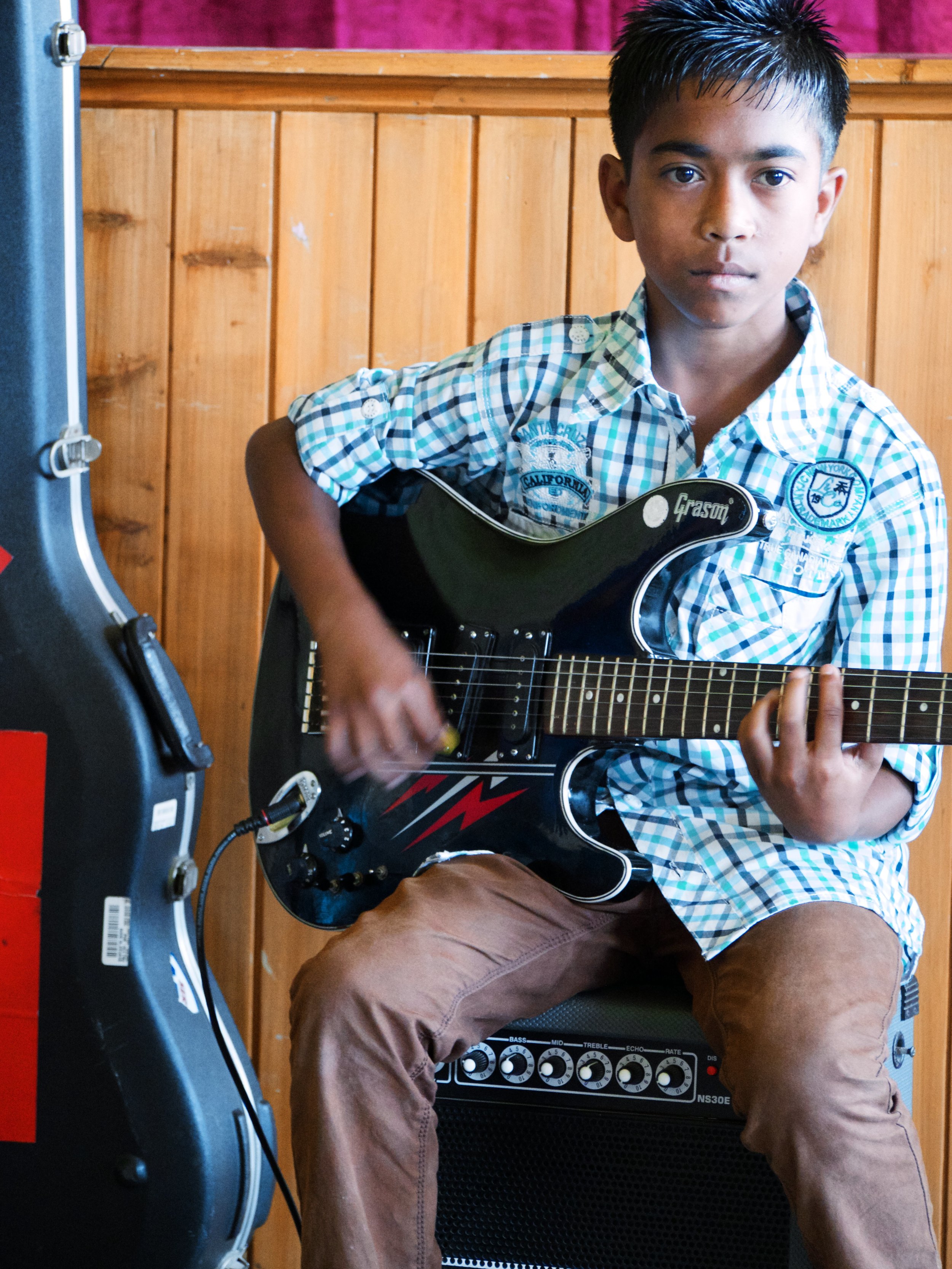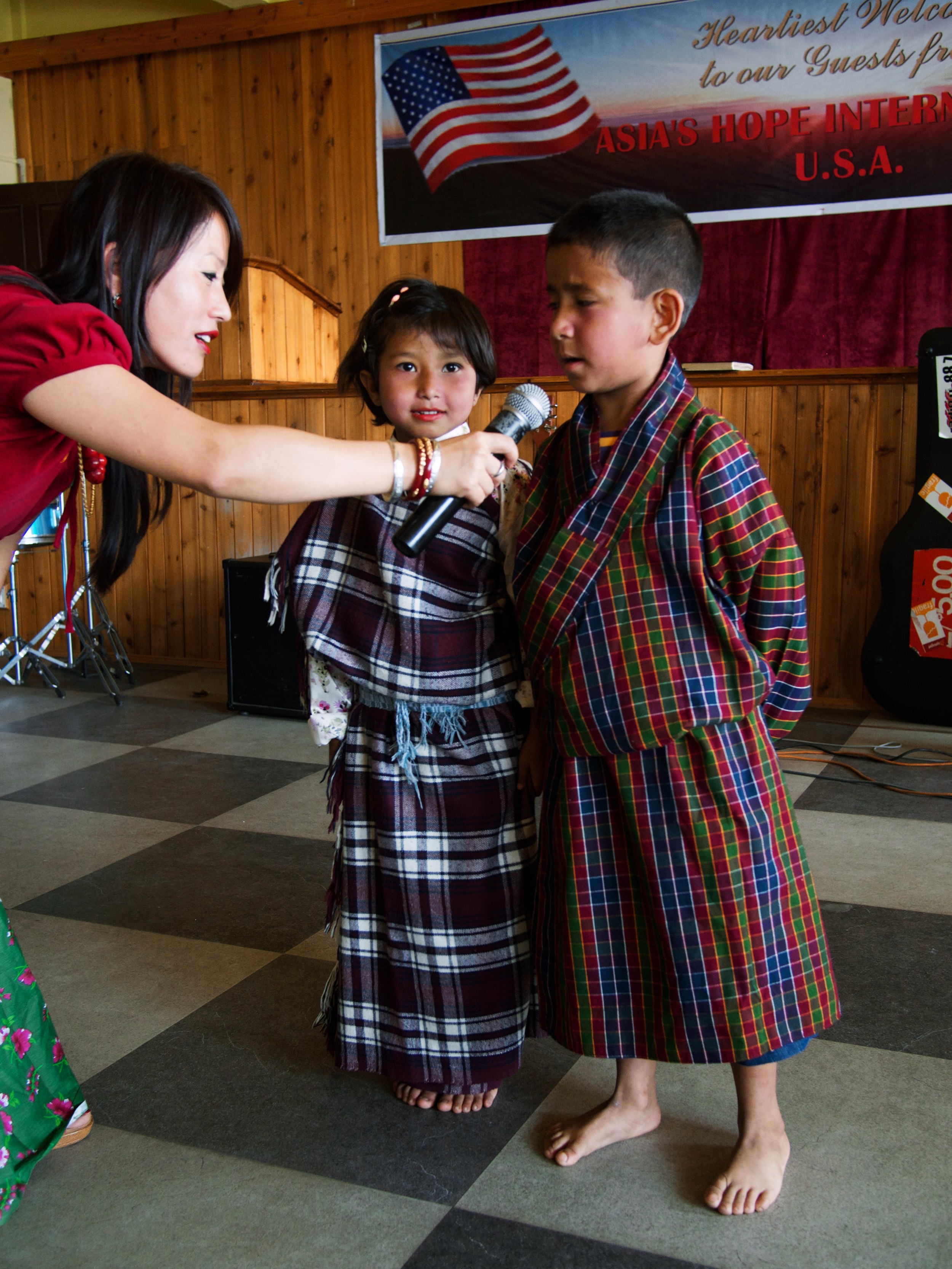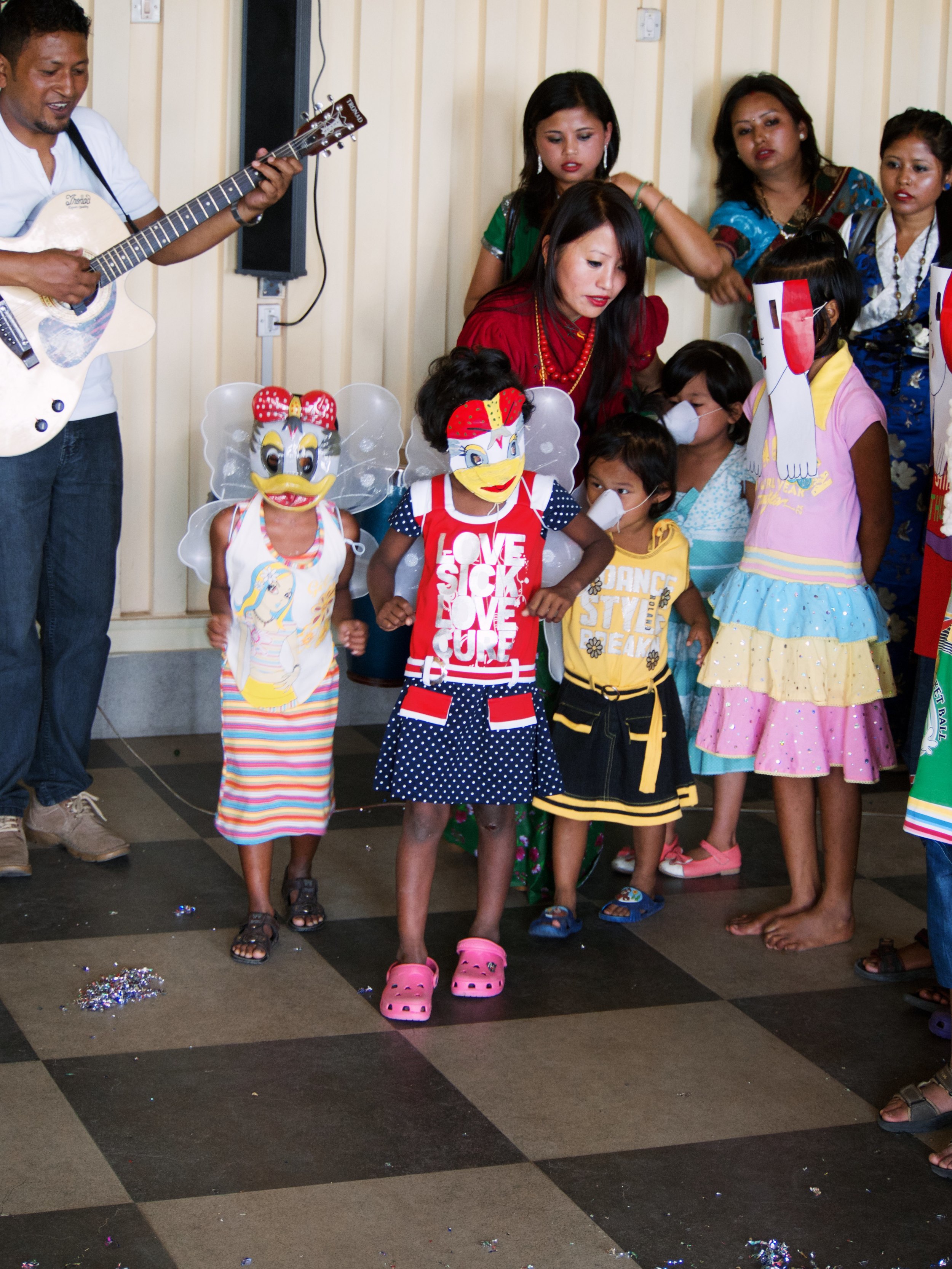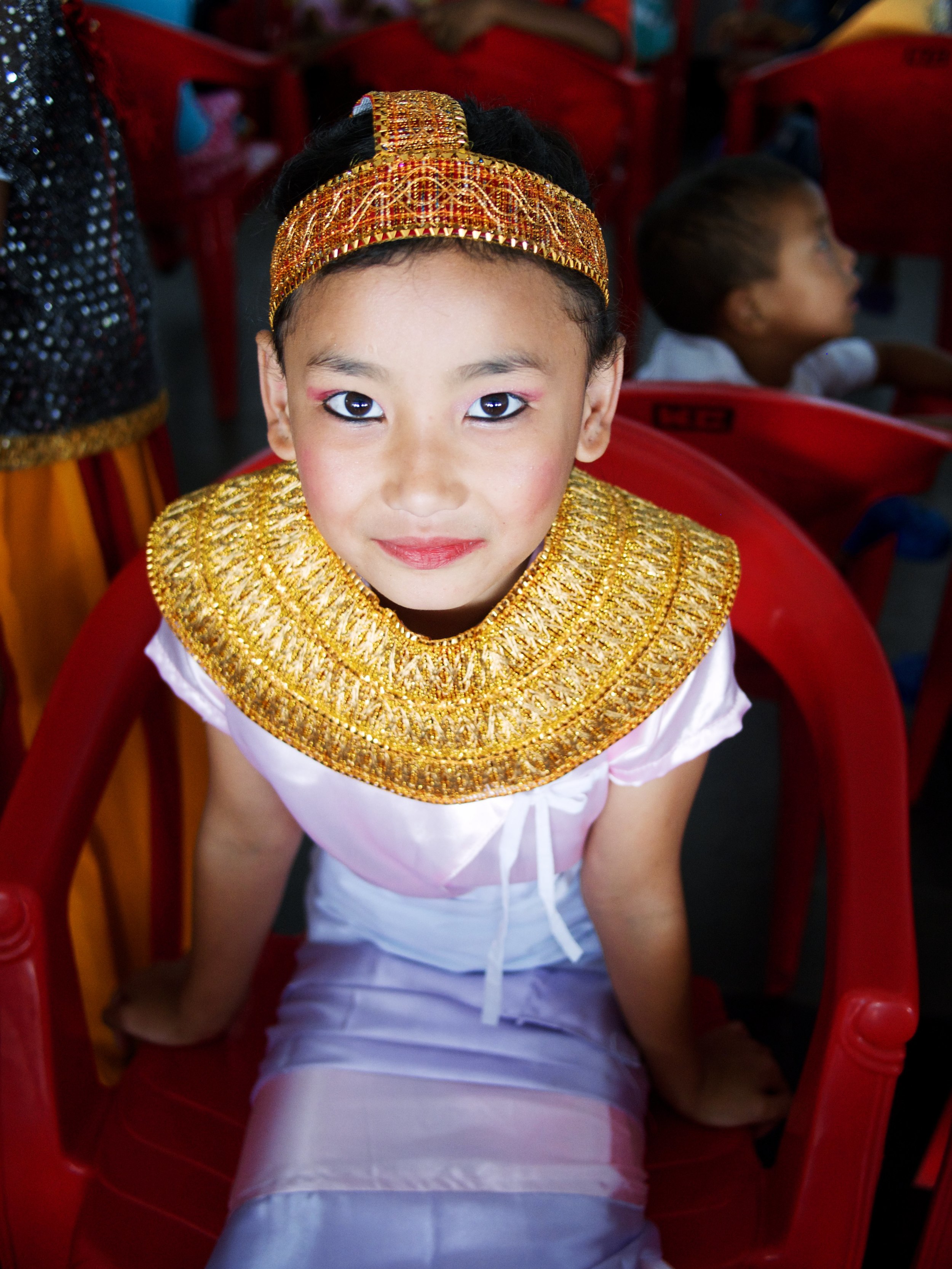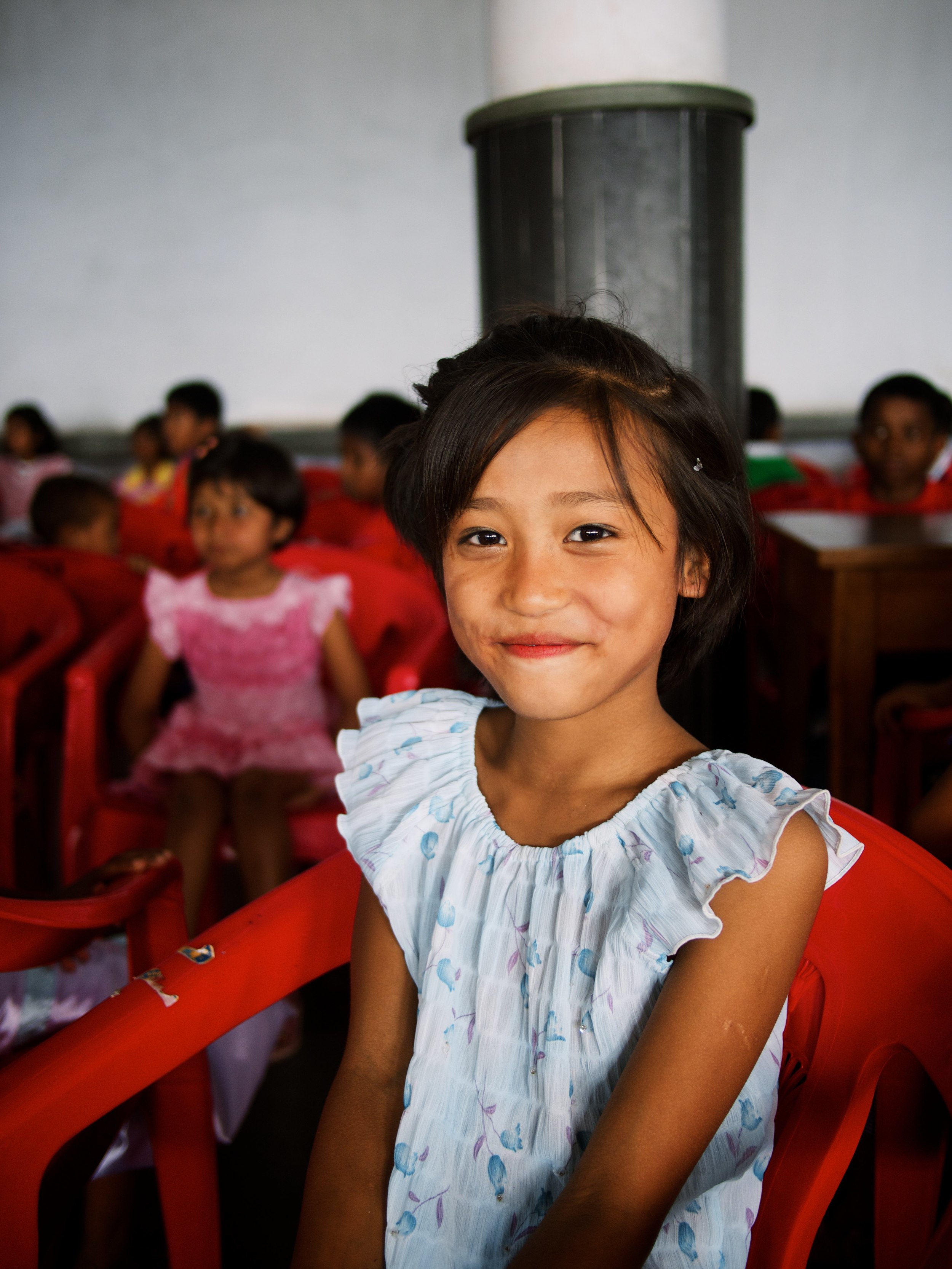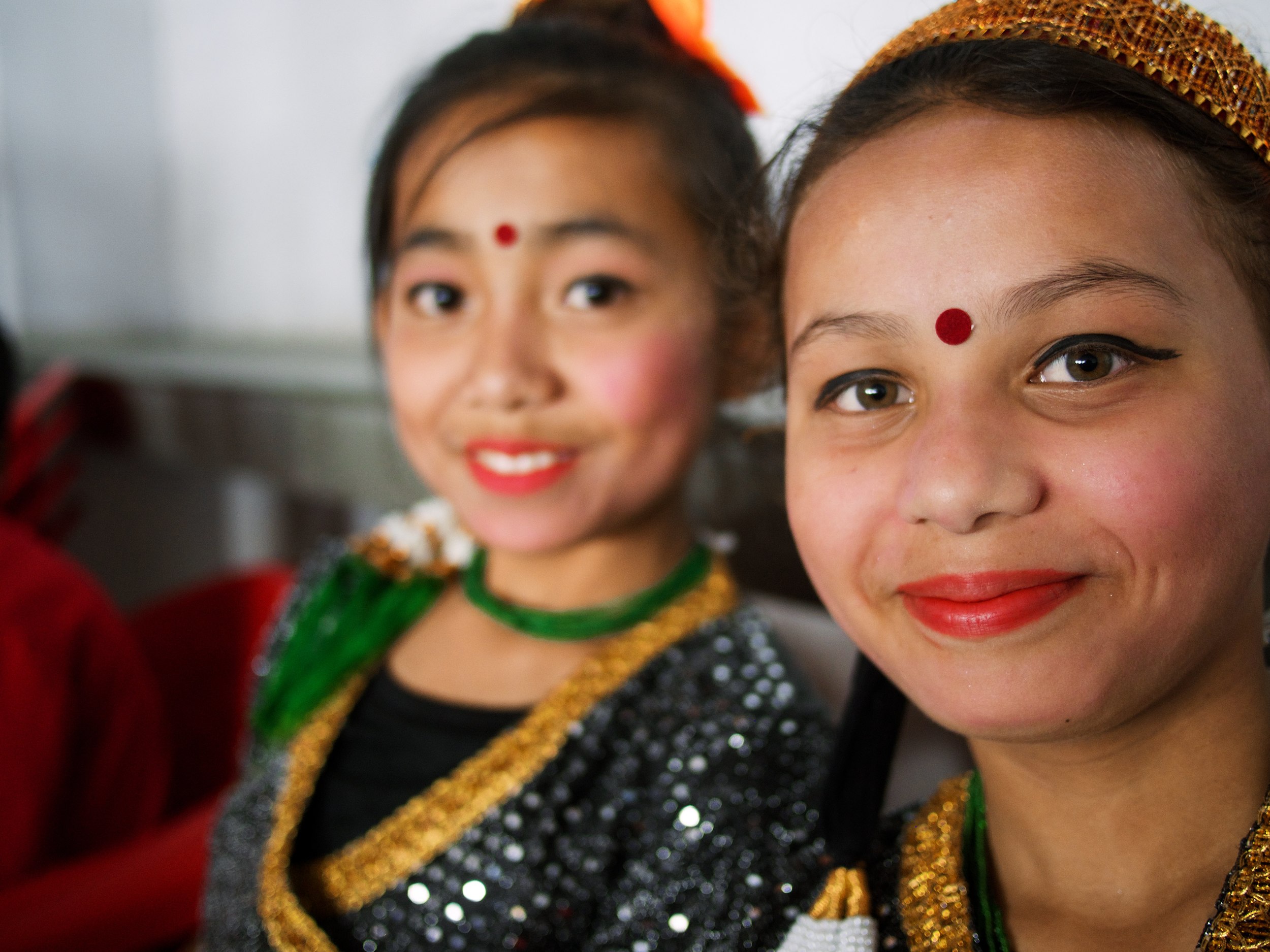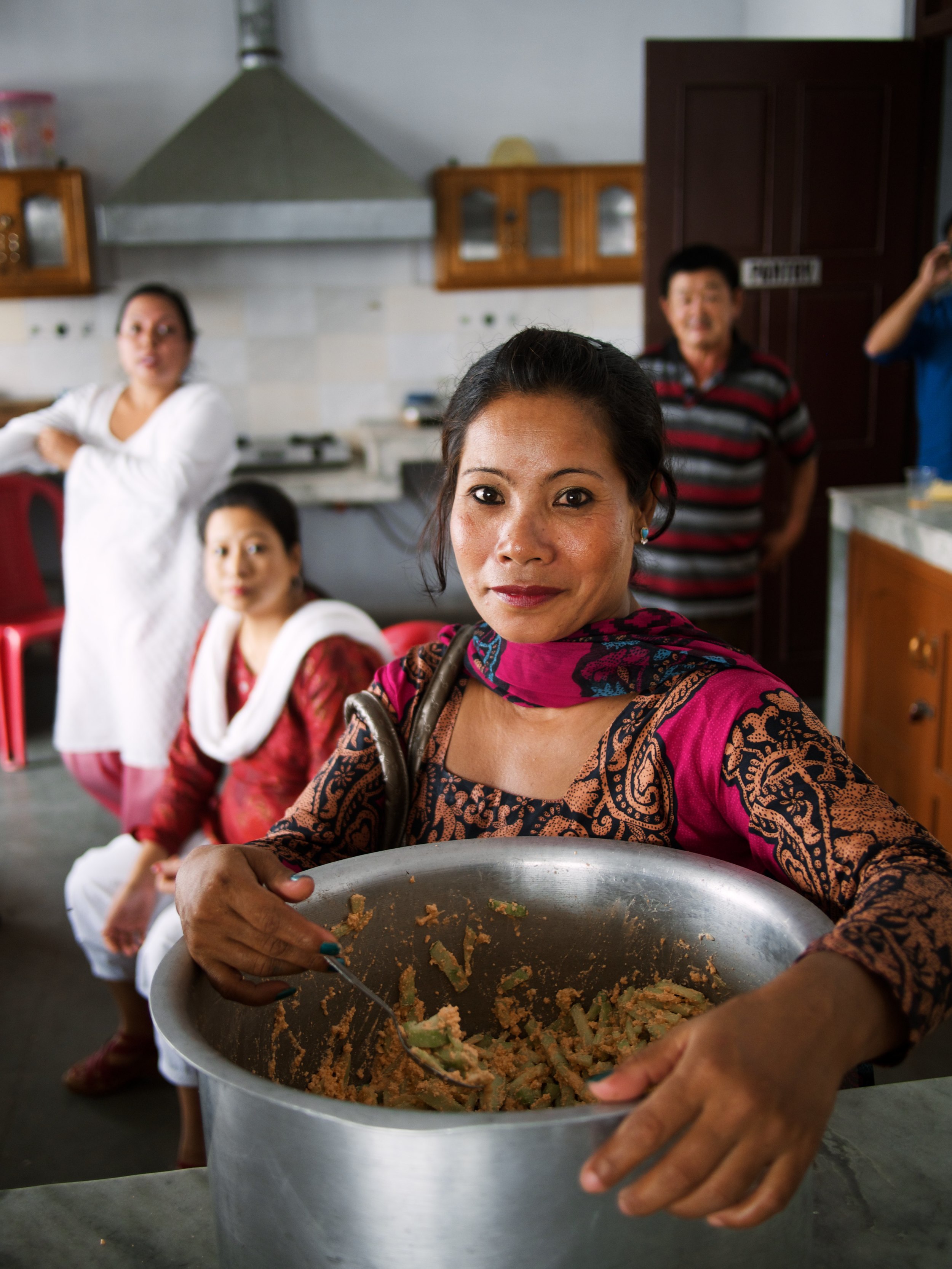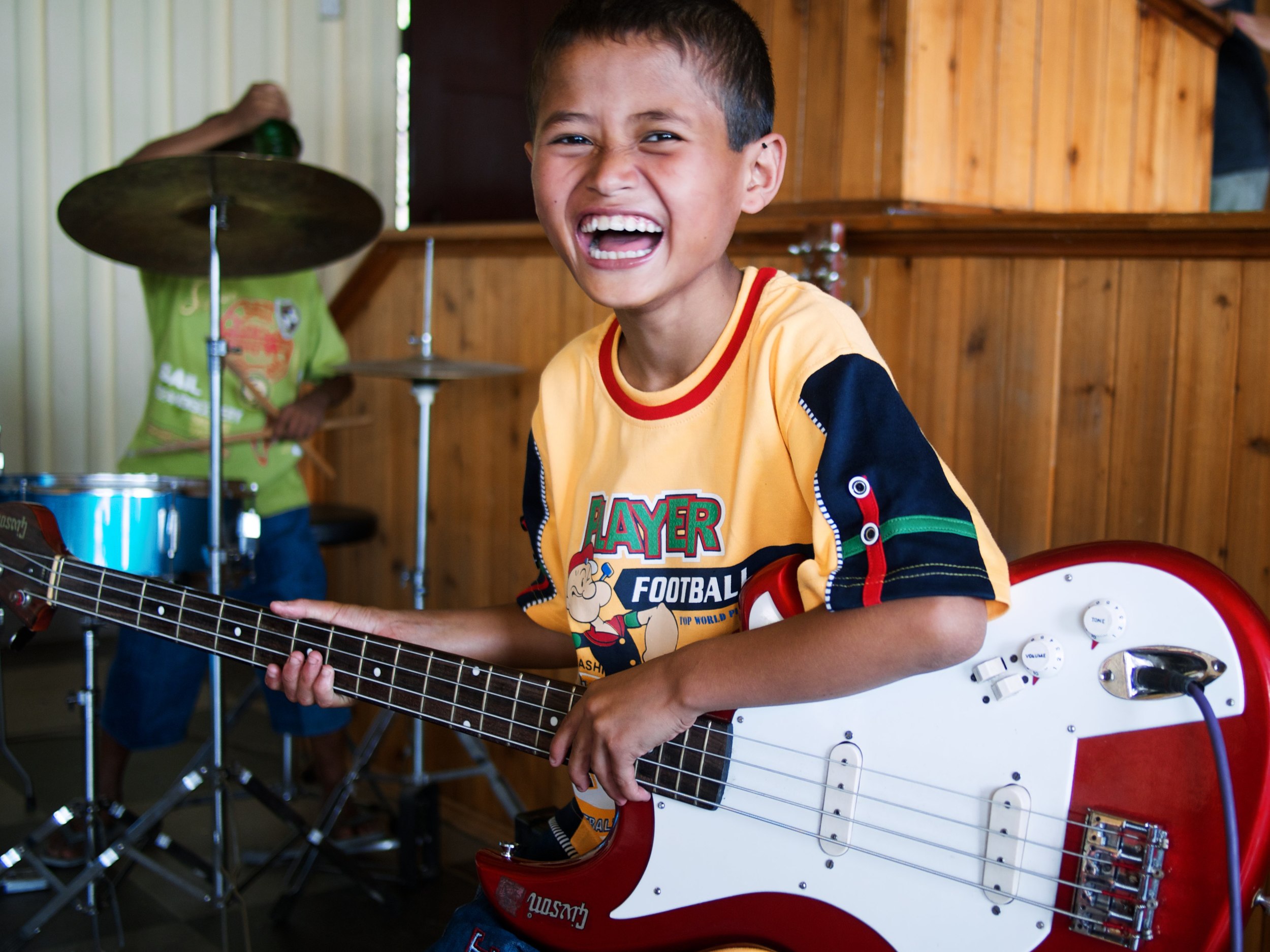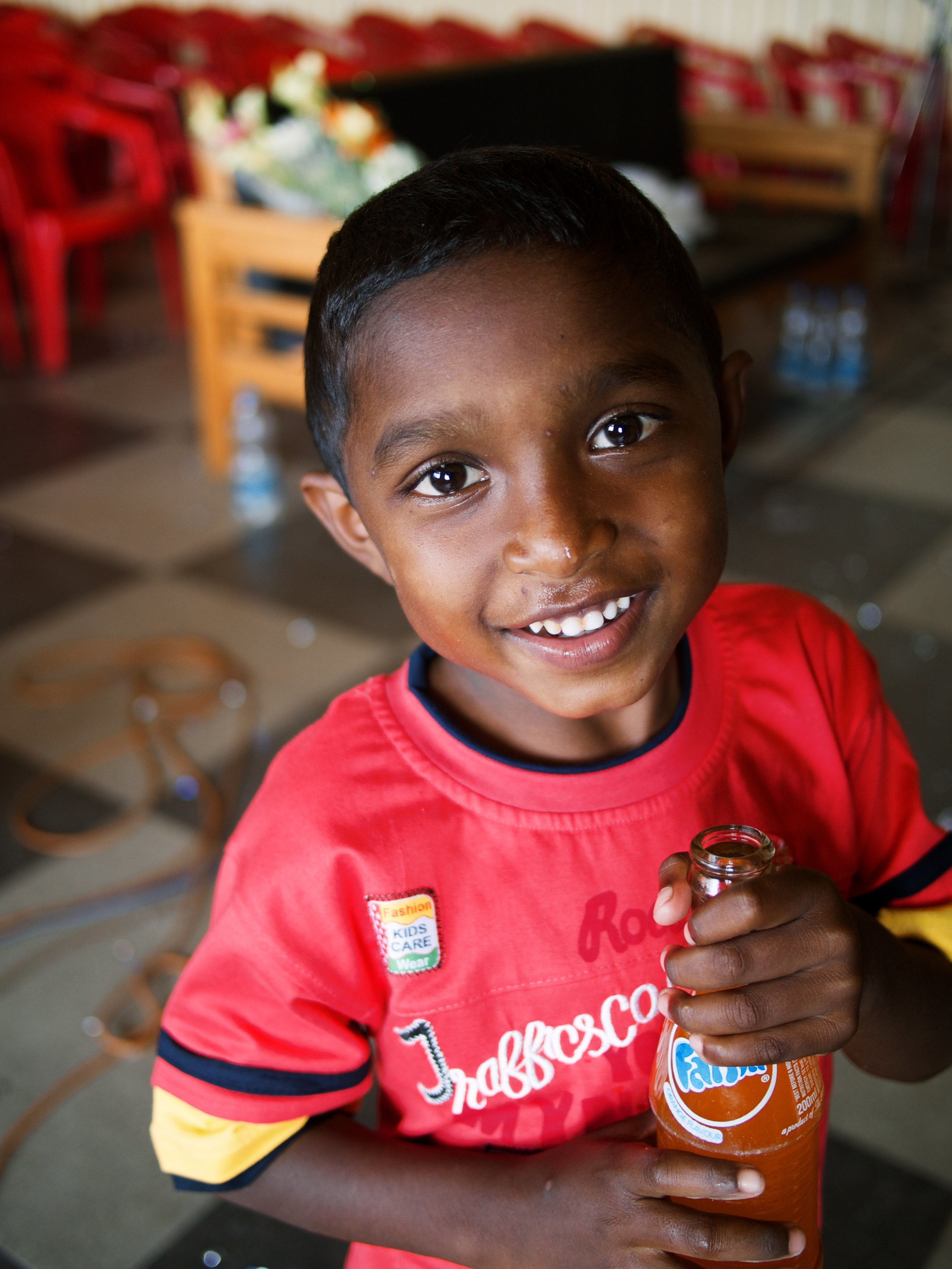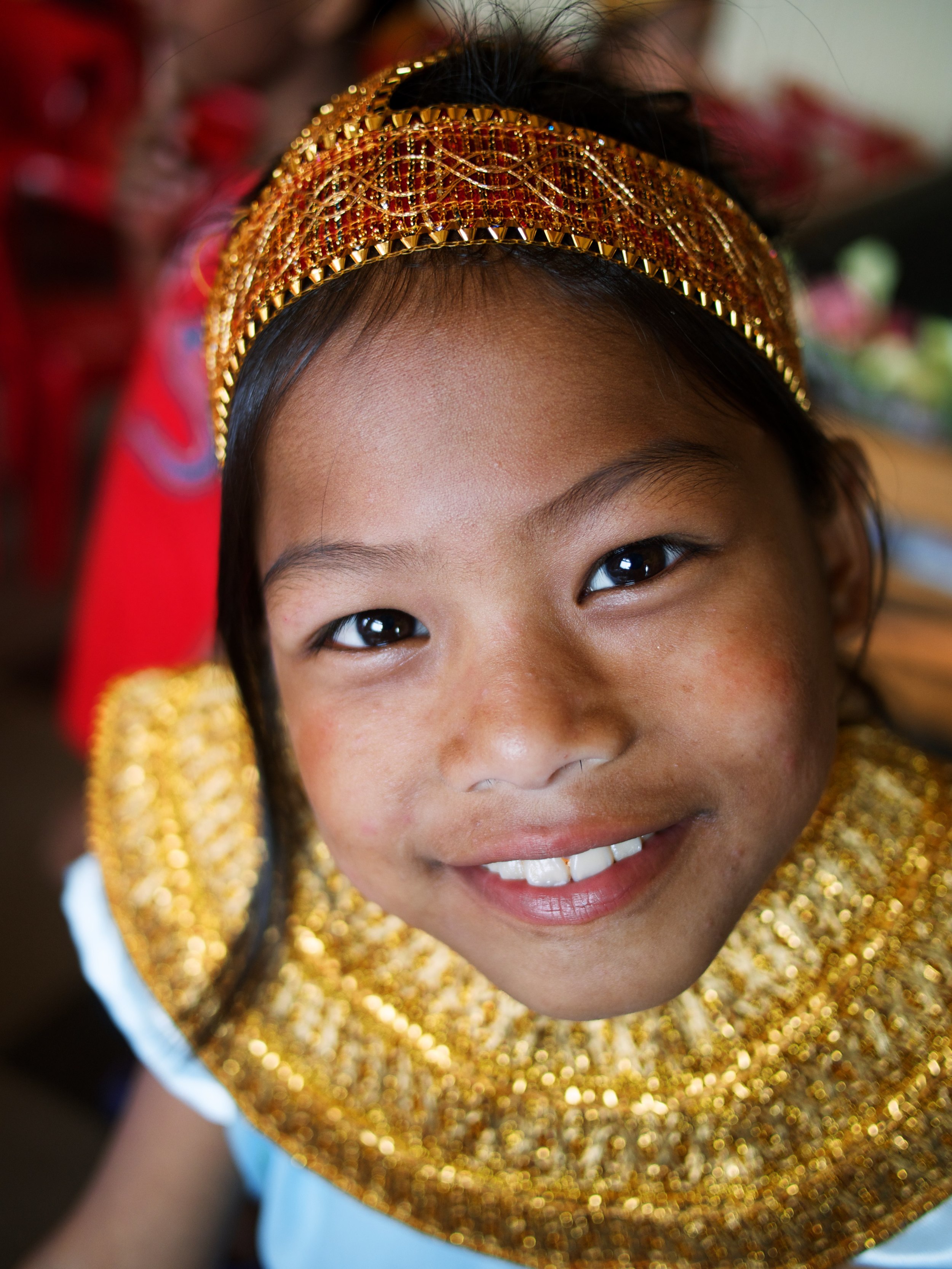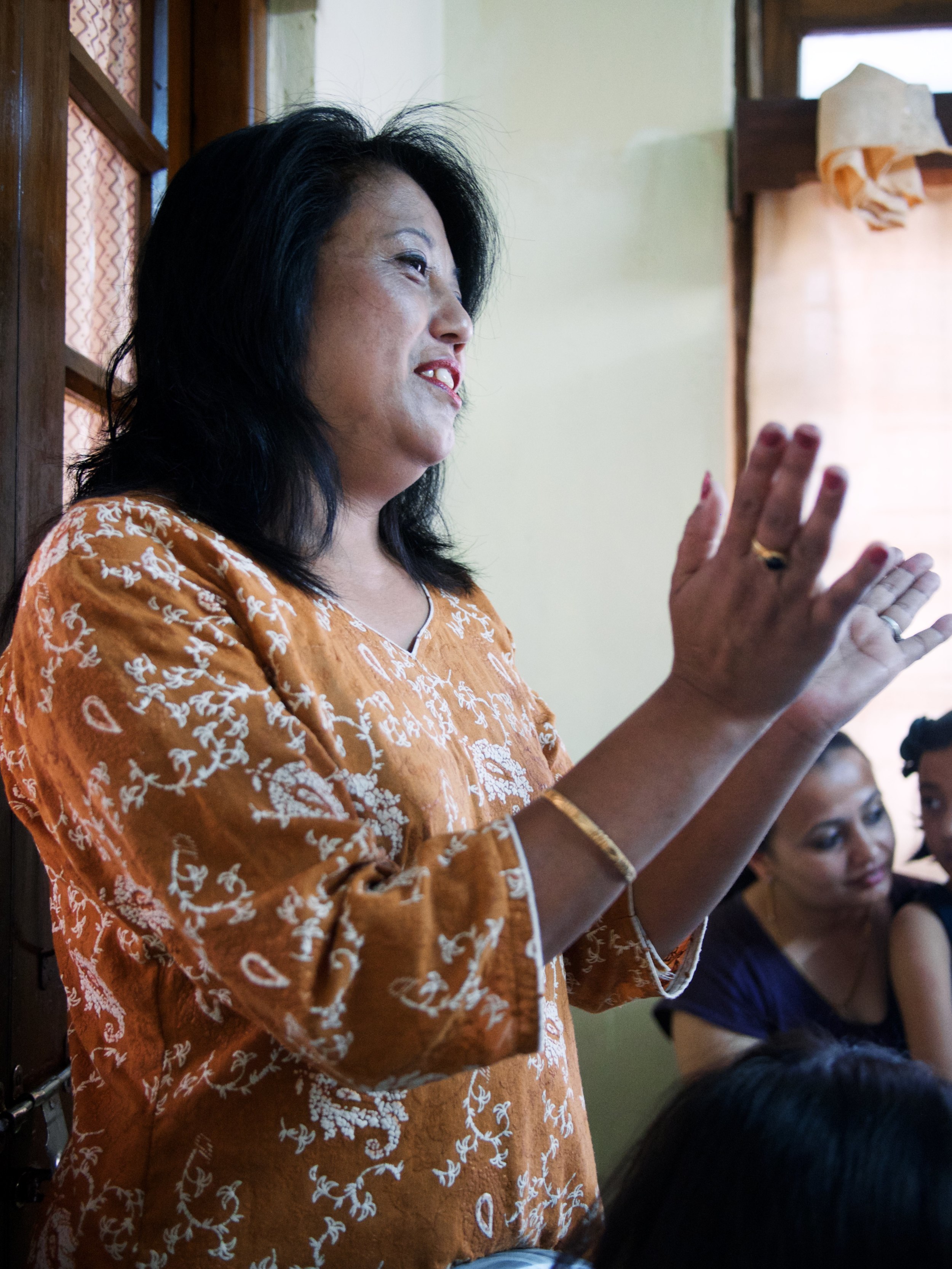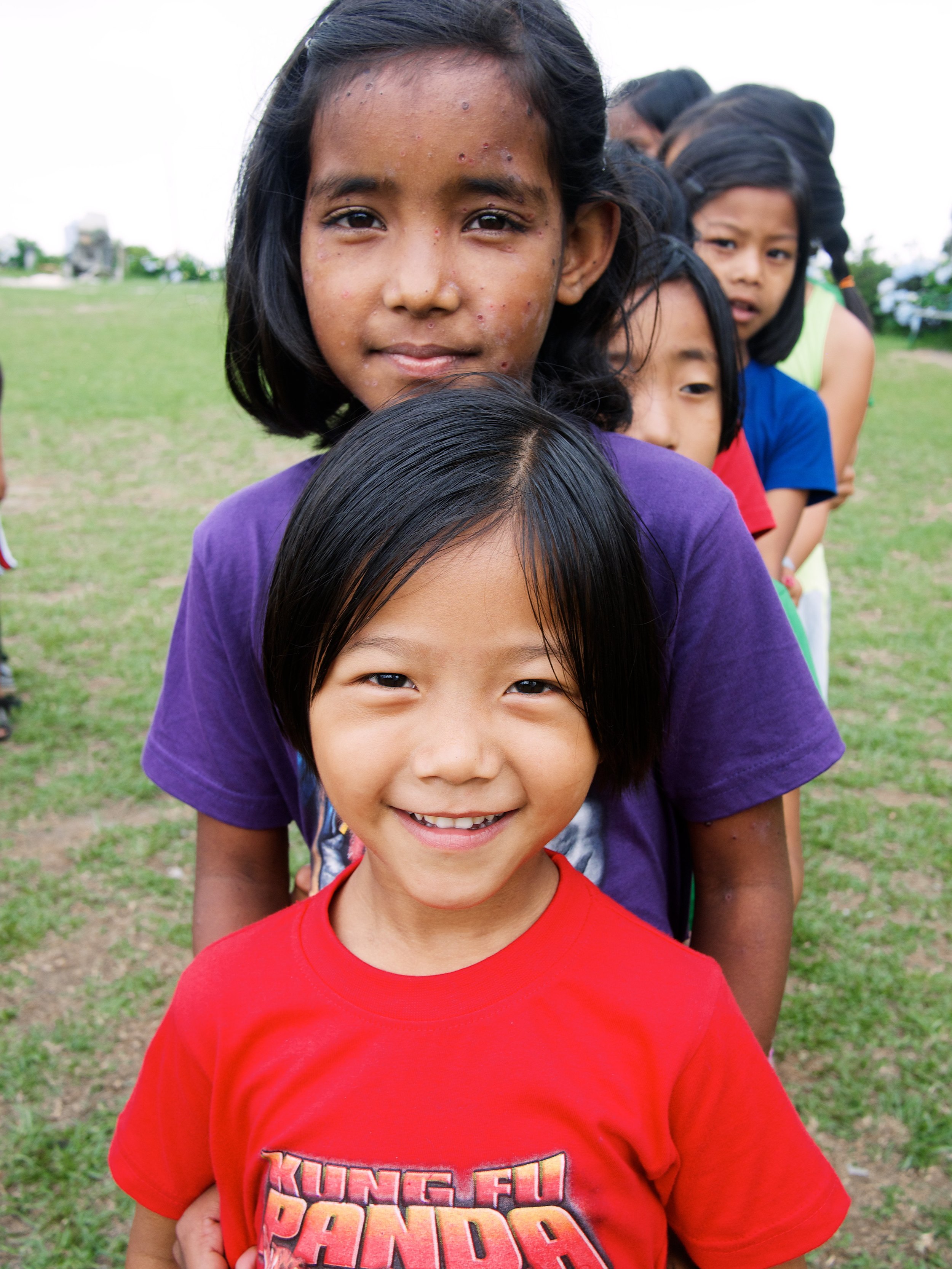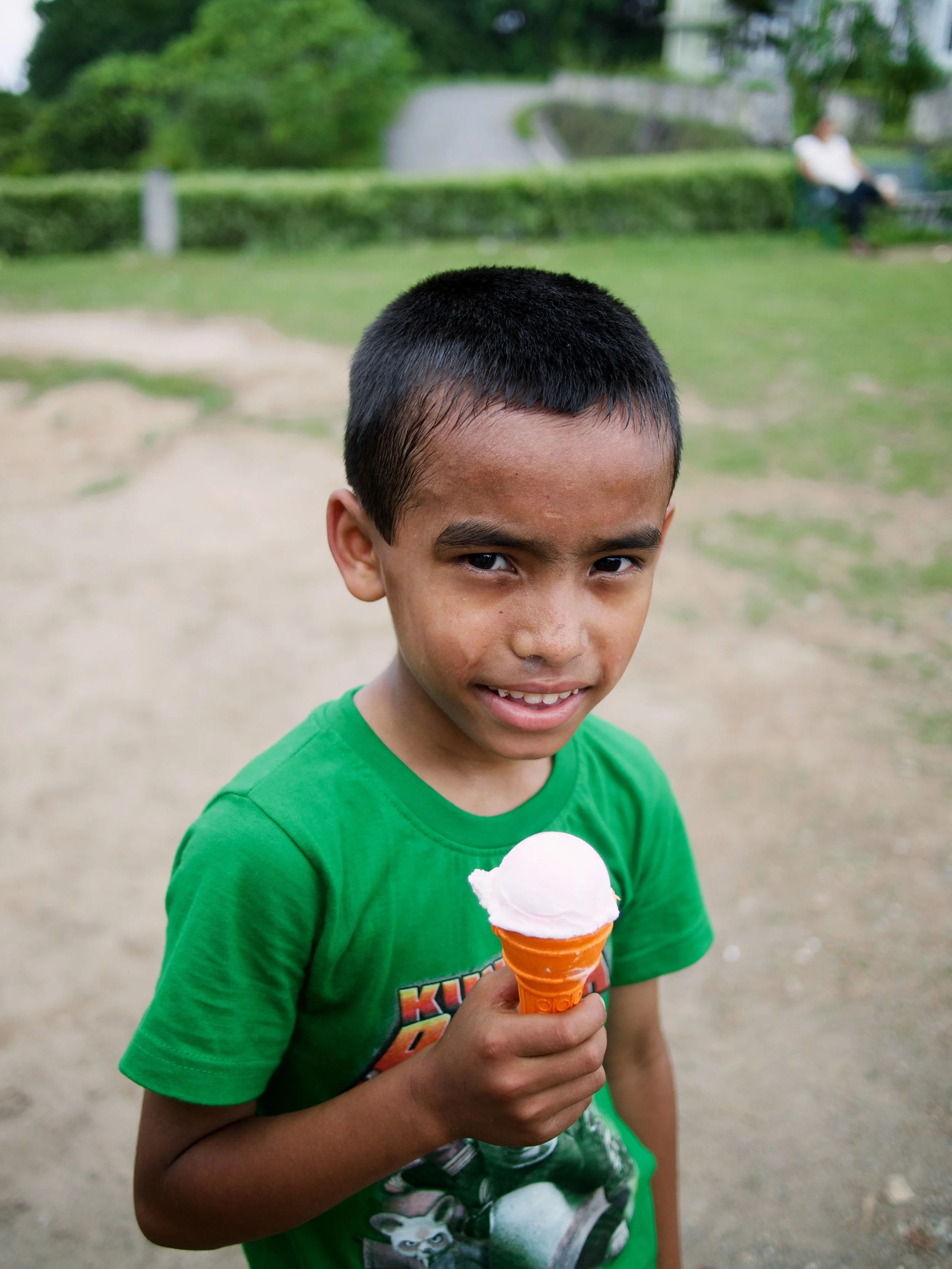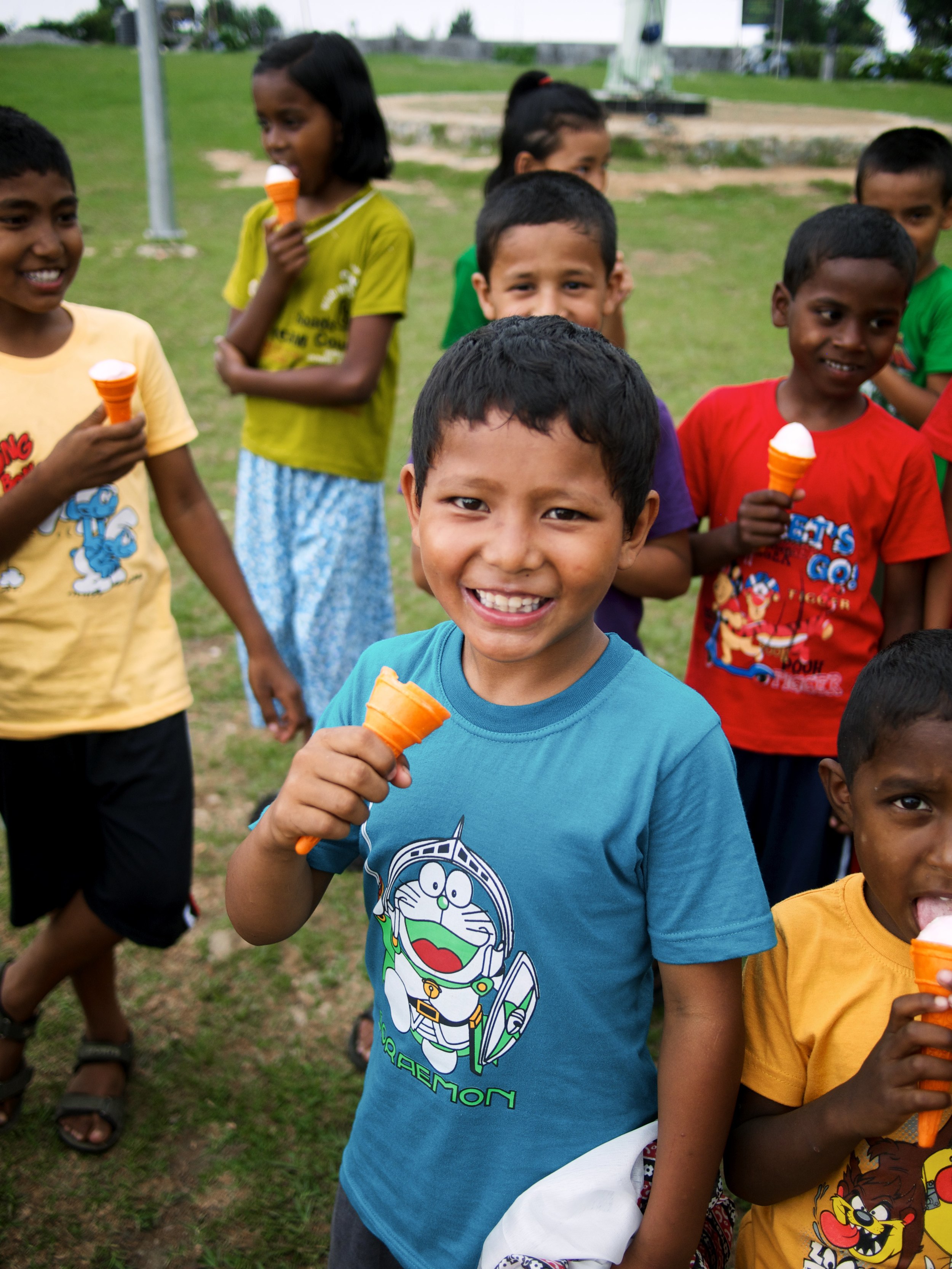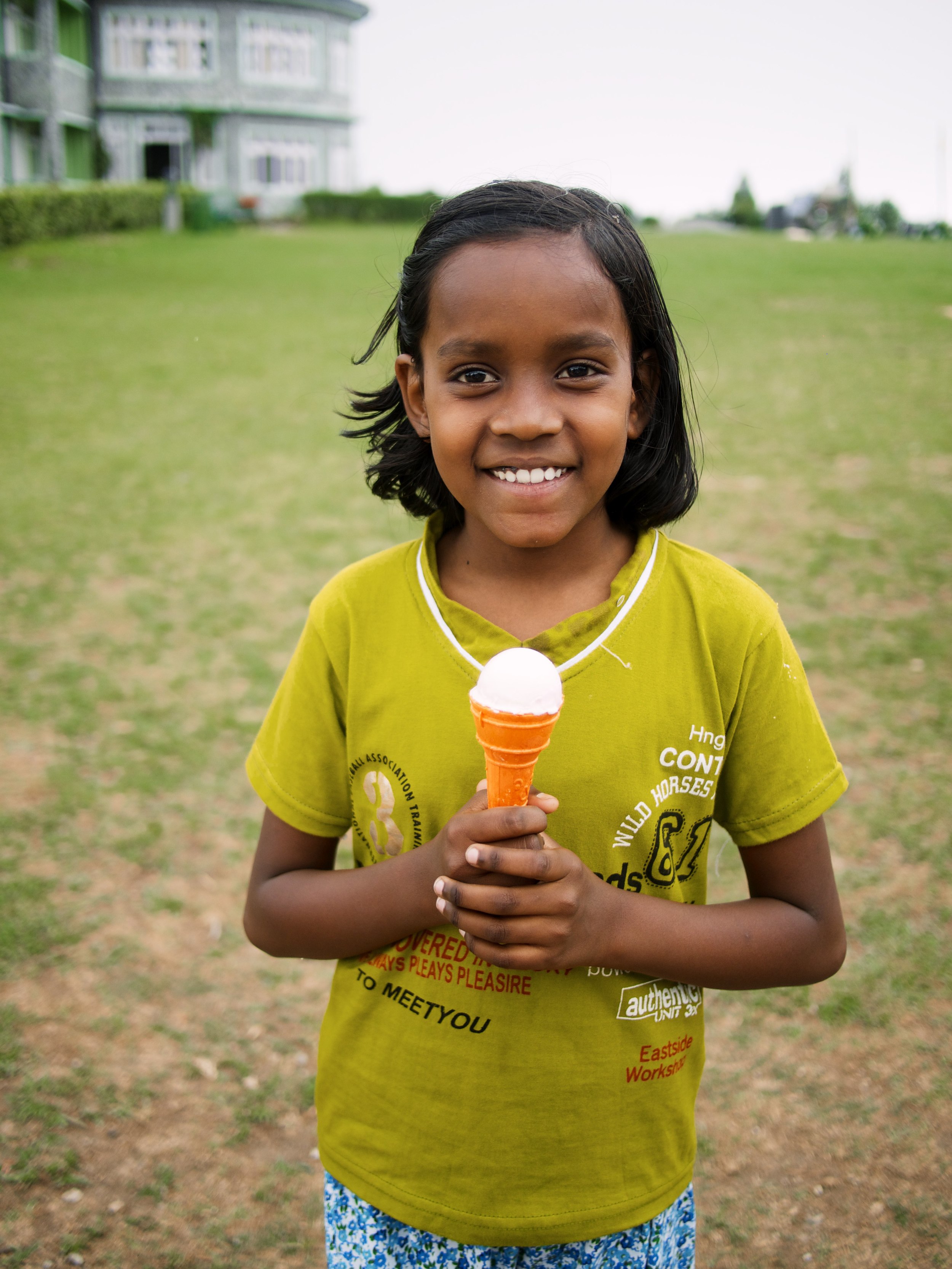We arrived at the Kalimpong Home 2 early yesterday, and got to see the kids eating their breakfast and getting ready for school. We're shooting a lot of video this year, and one of the four videos we're producing is focused on education, so we wanted to capture some of the "day in the life" kinds of images we'll need for that project.
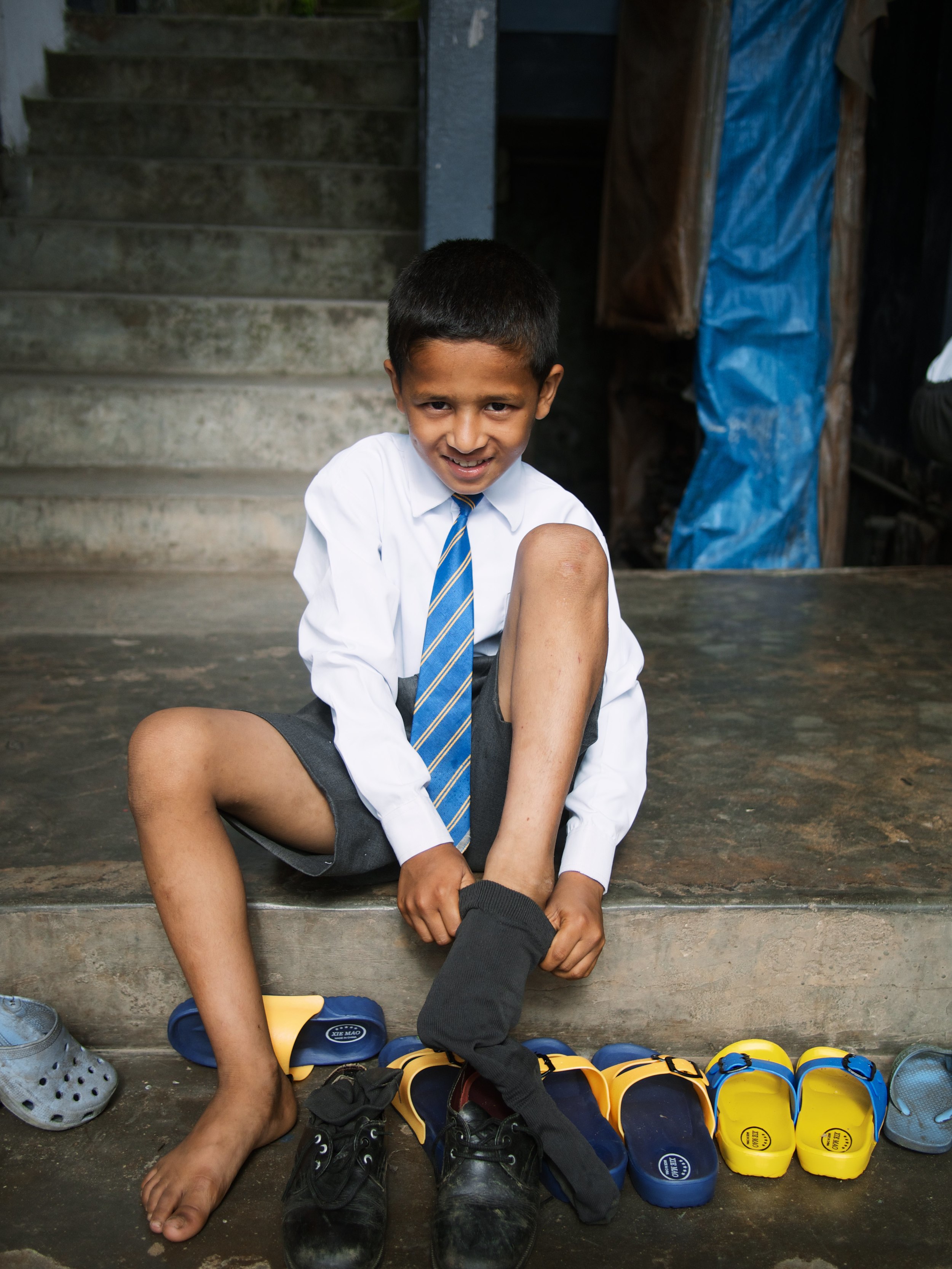
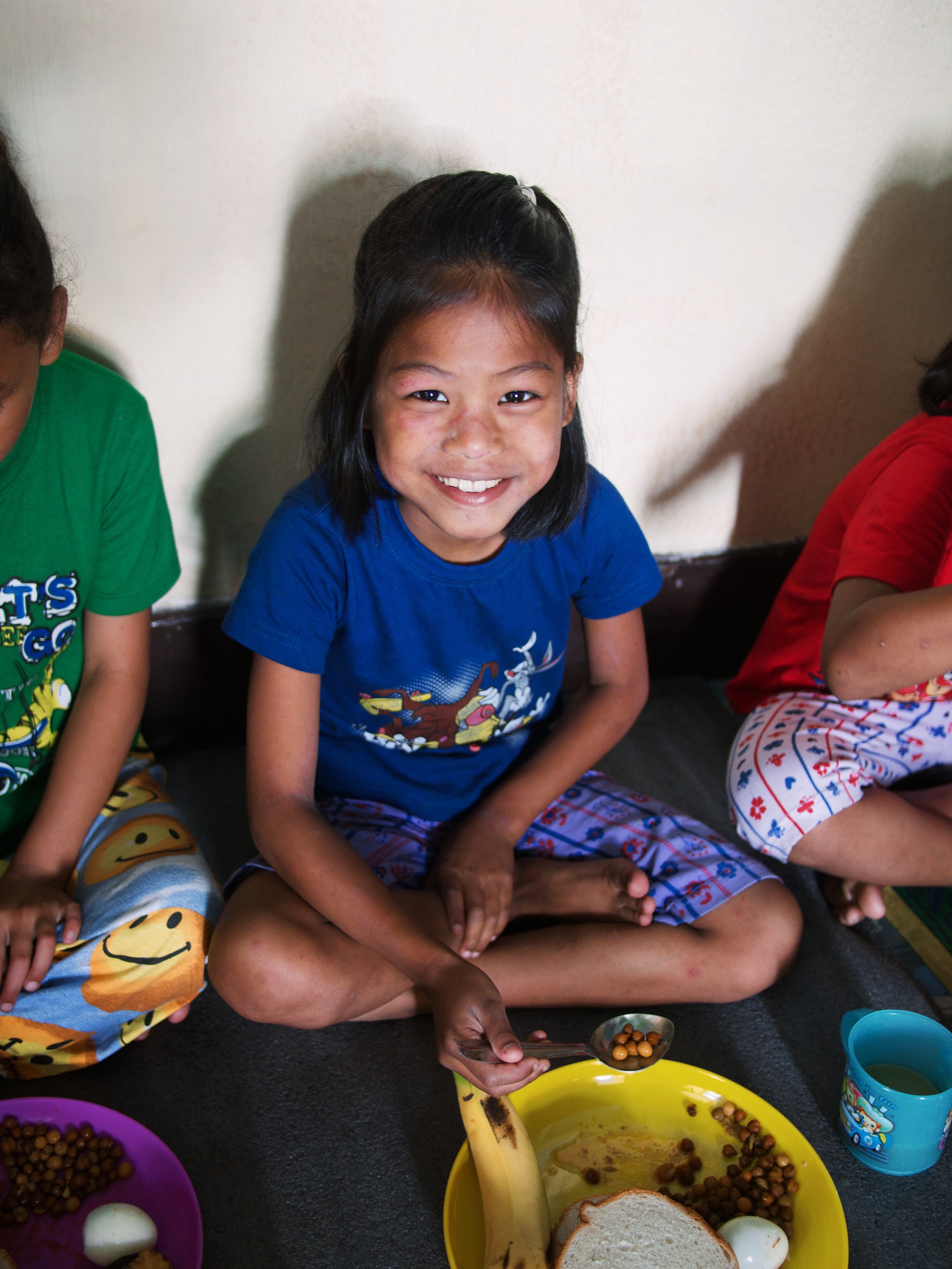

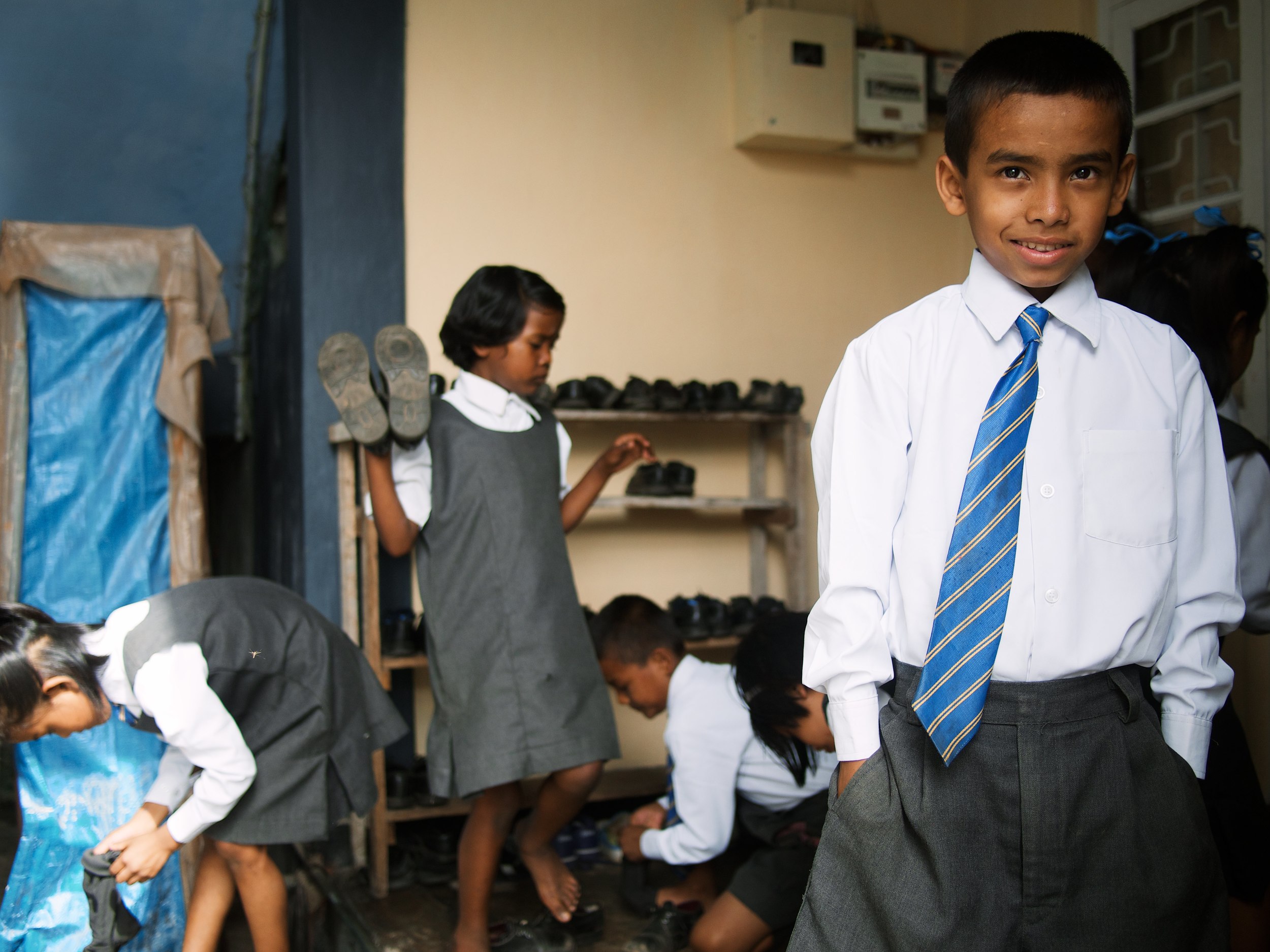
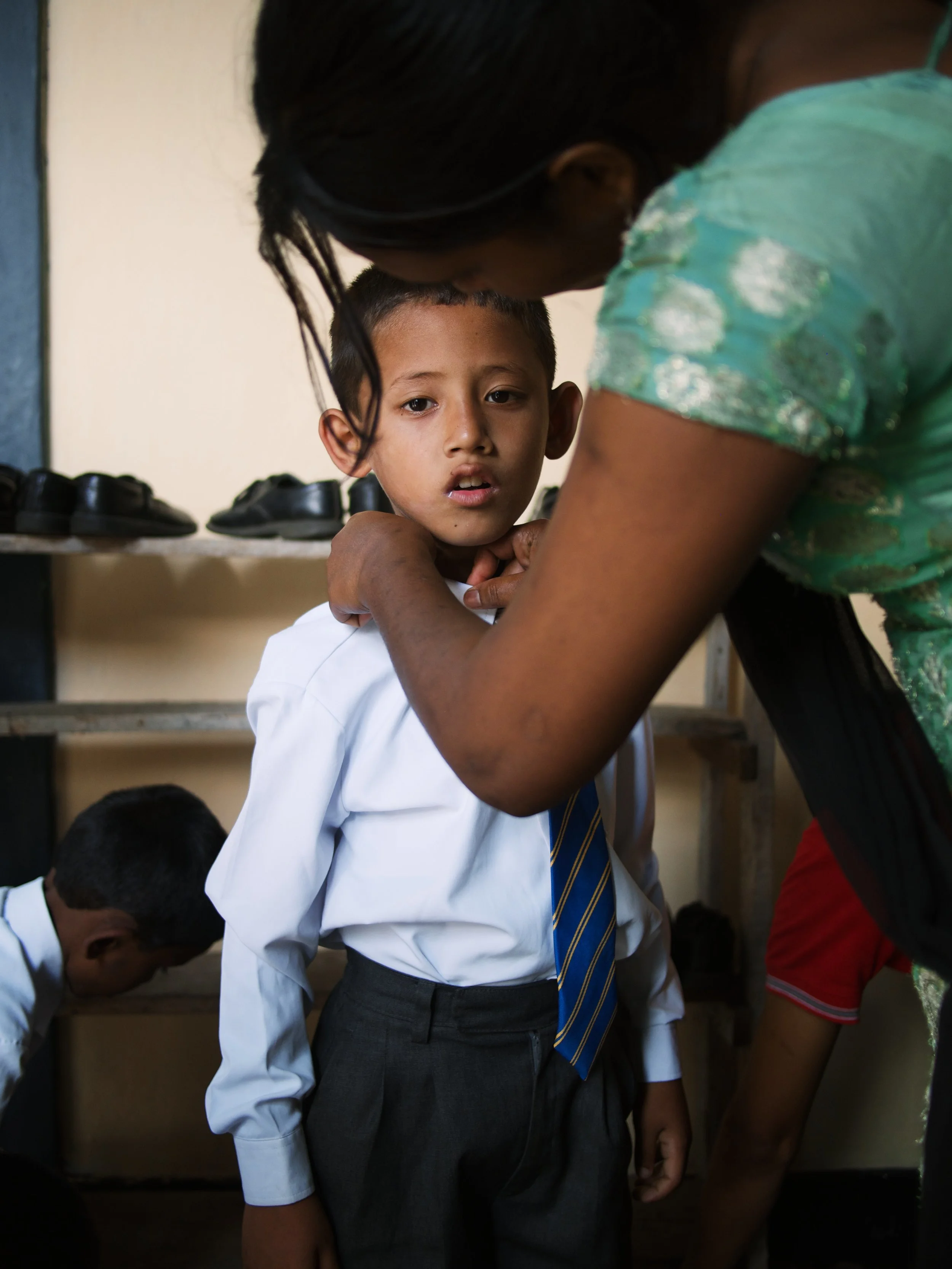
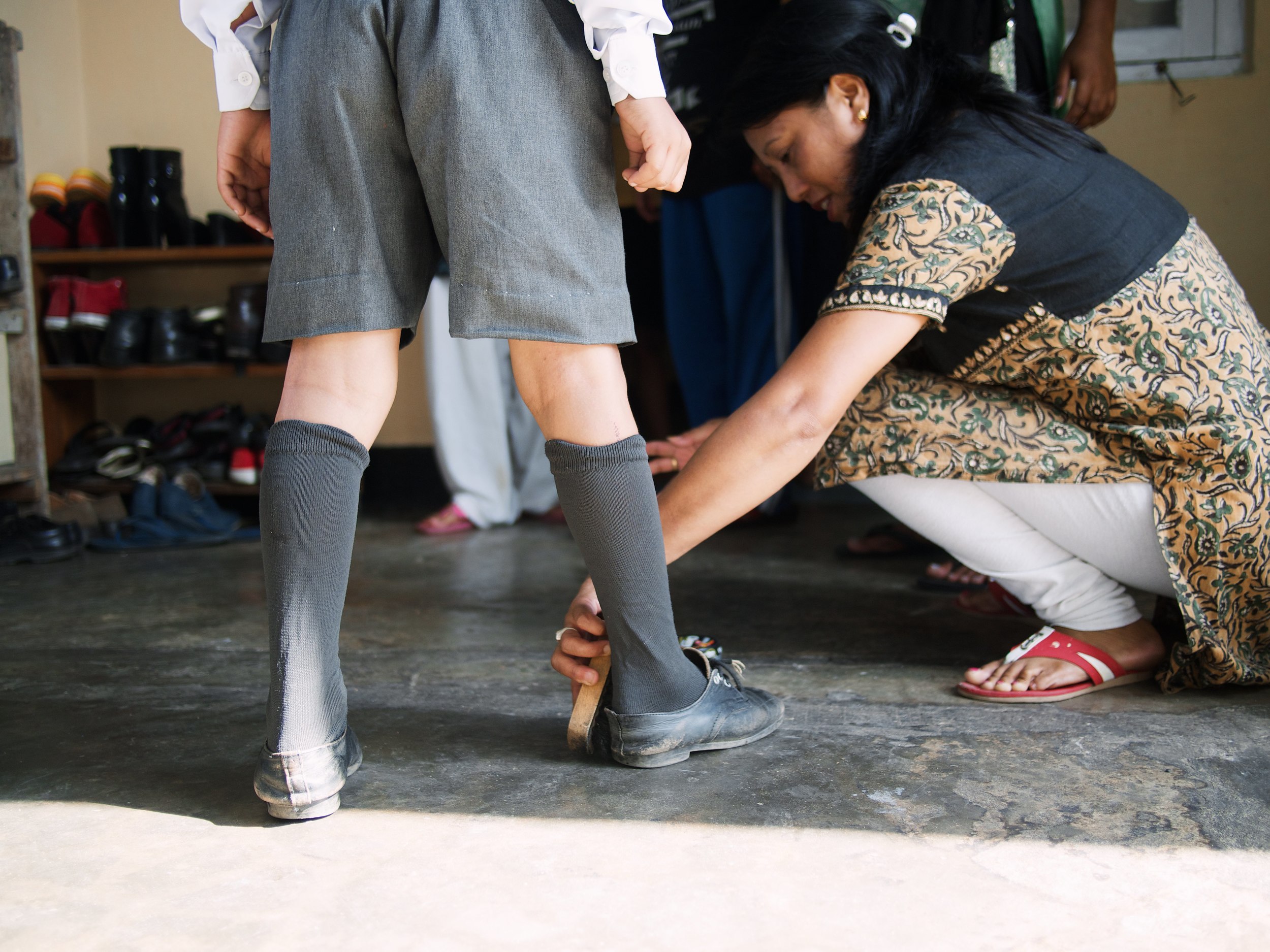
For a home with 25 kids, two parents and "aunties," things went really quite smoothly. The children all enjoyed their breakfast together in the main living area, and then the aunties and parents helped the girls comb their hair, braiding it or putting it in ponytails. The aunties and mom, Punam, slicked back the boys' hair, and helped them straighten their ties Dad, Sunil, touched up all of the shoes with polish and a brush. The kids then piled into vans and headed off to school.
We then went with Nandu and Kumal, a driver from the church, and visited Jubilee High School, where 16 of our kids, mostly from the Kalimpong 1 home, attend. I was impressed by the school -- it's semi-public, and all of the courses are taught in English. The headmaster and the teachers seem highly qualified and treat the children firmly, but with respect.

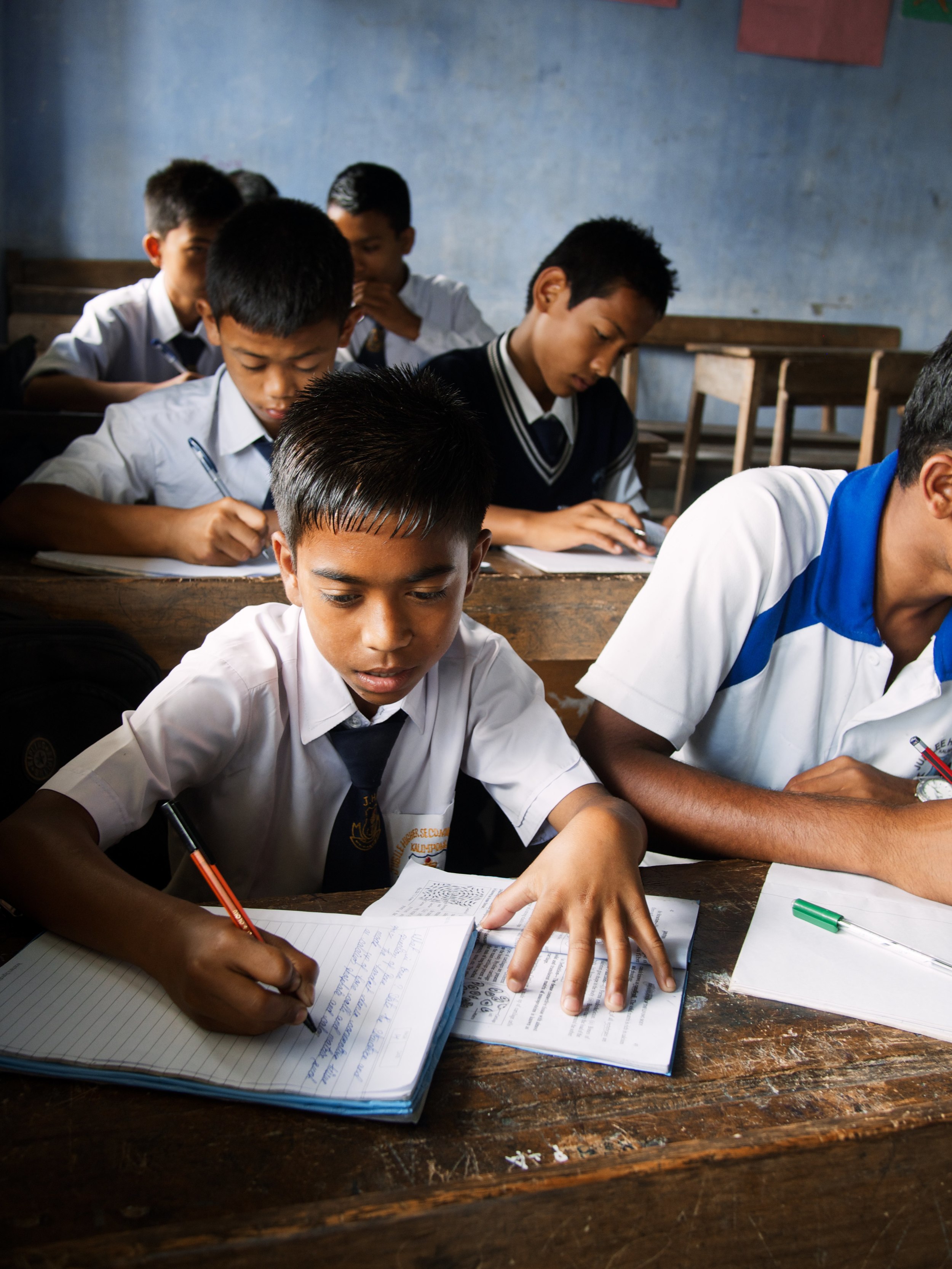
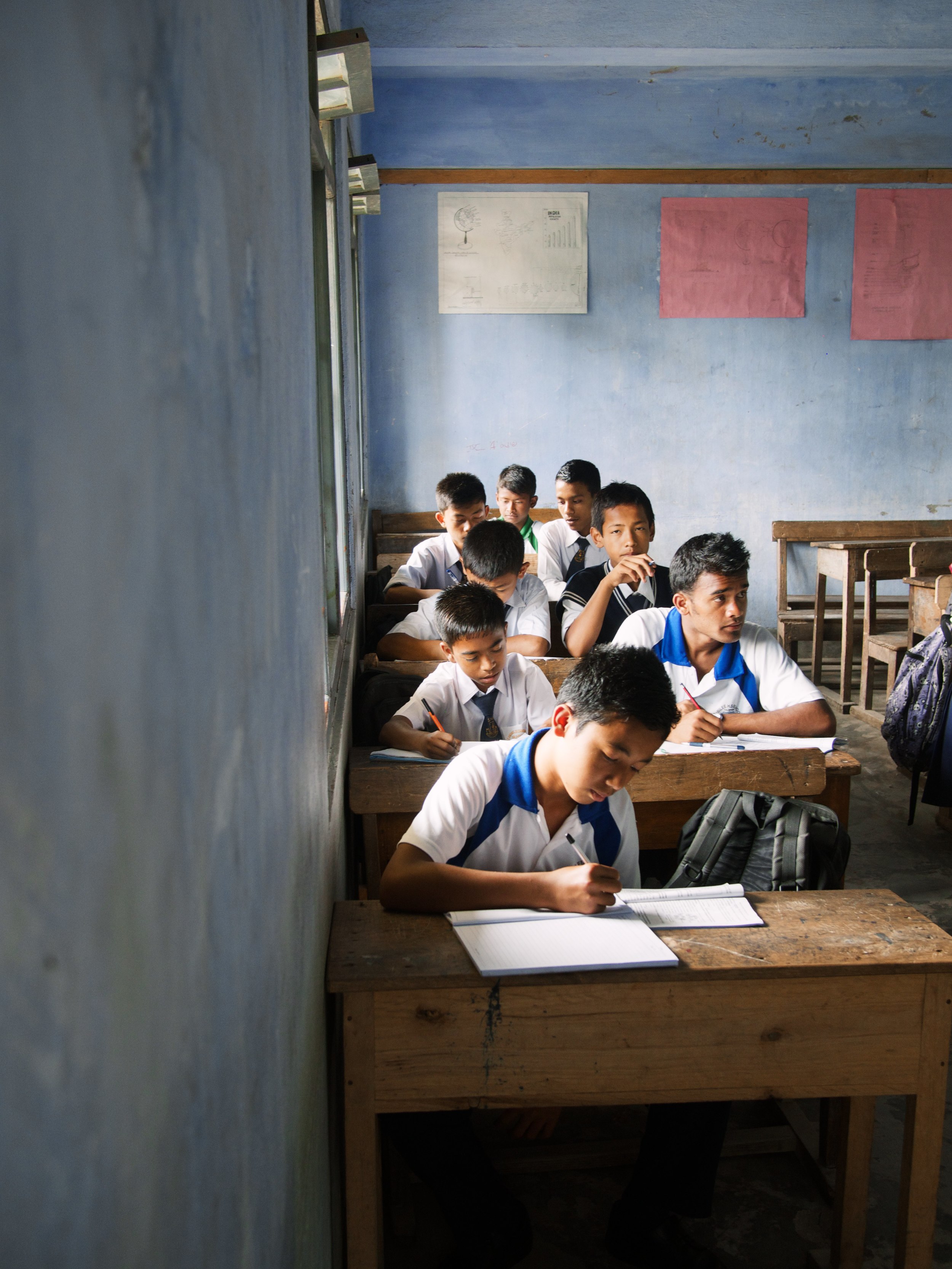
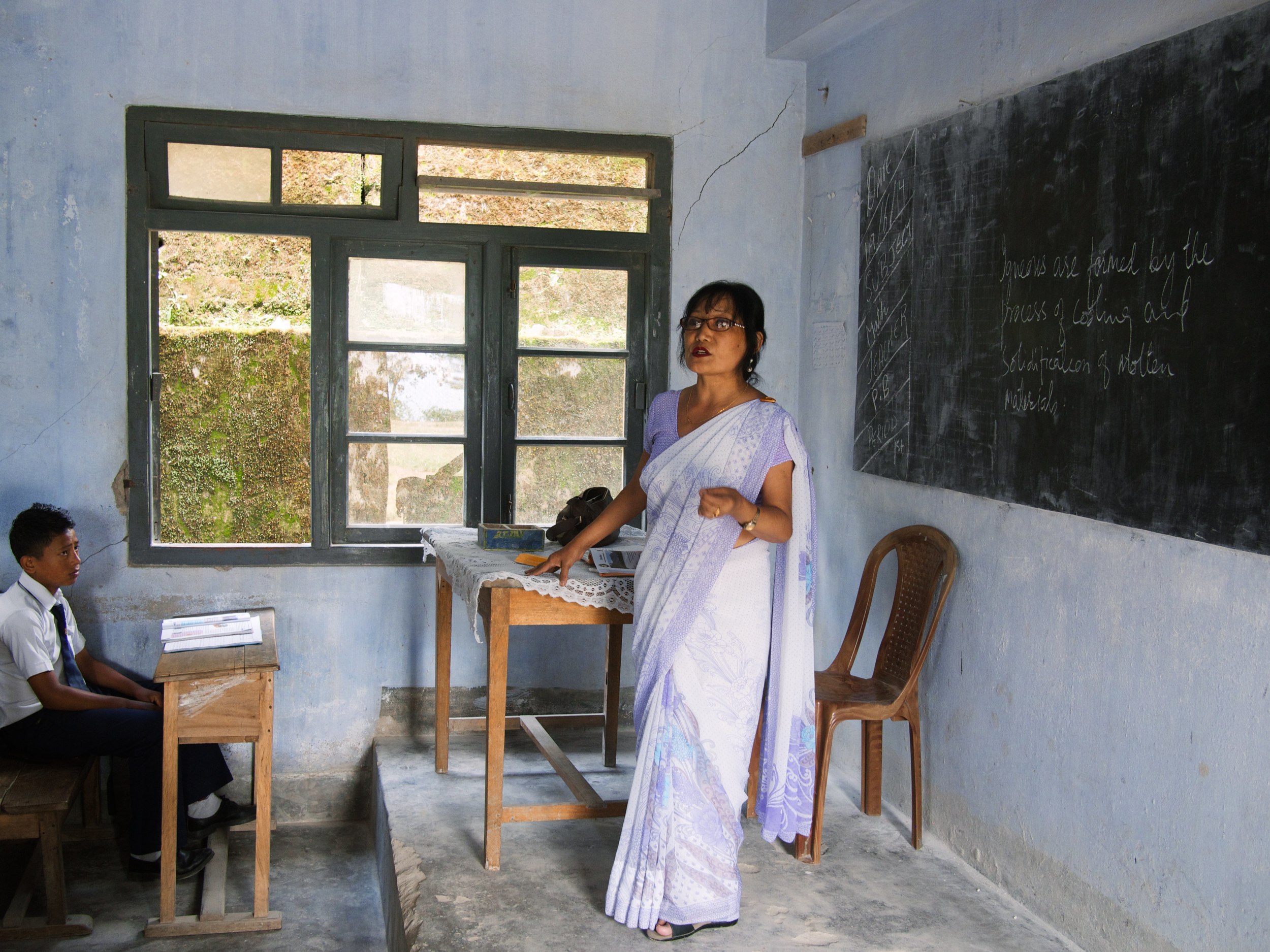
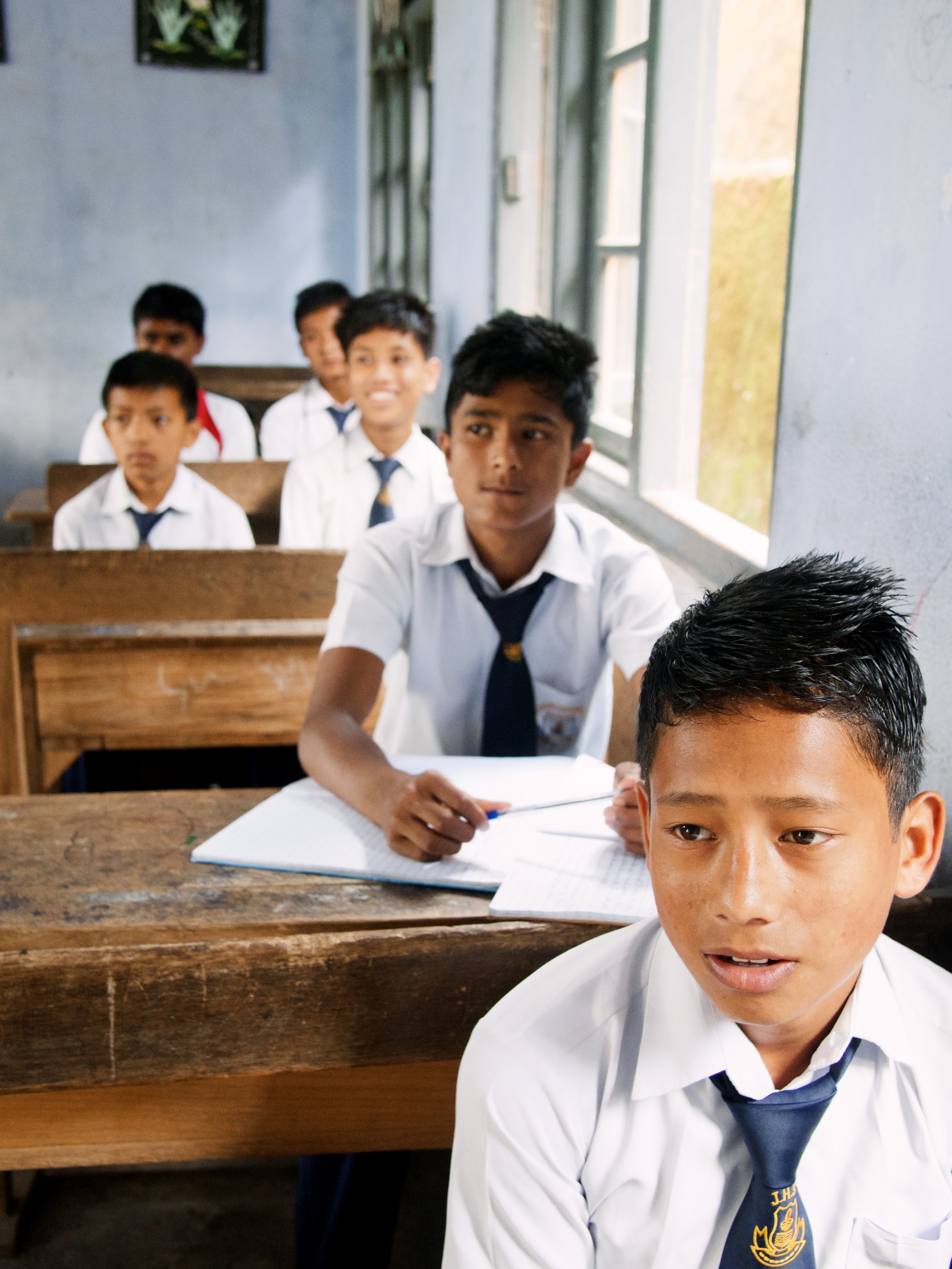
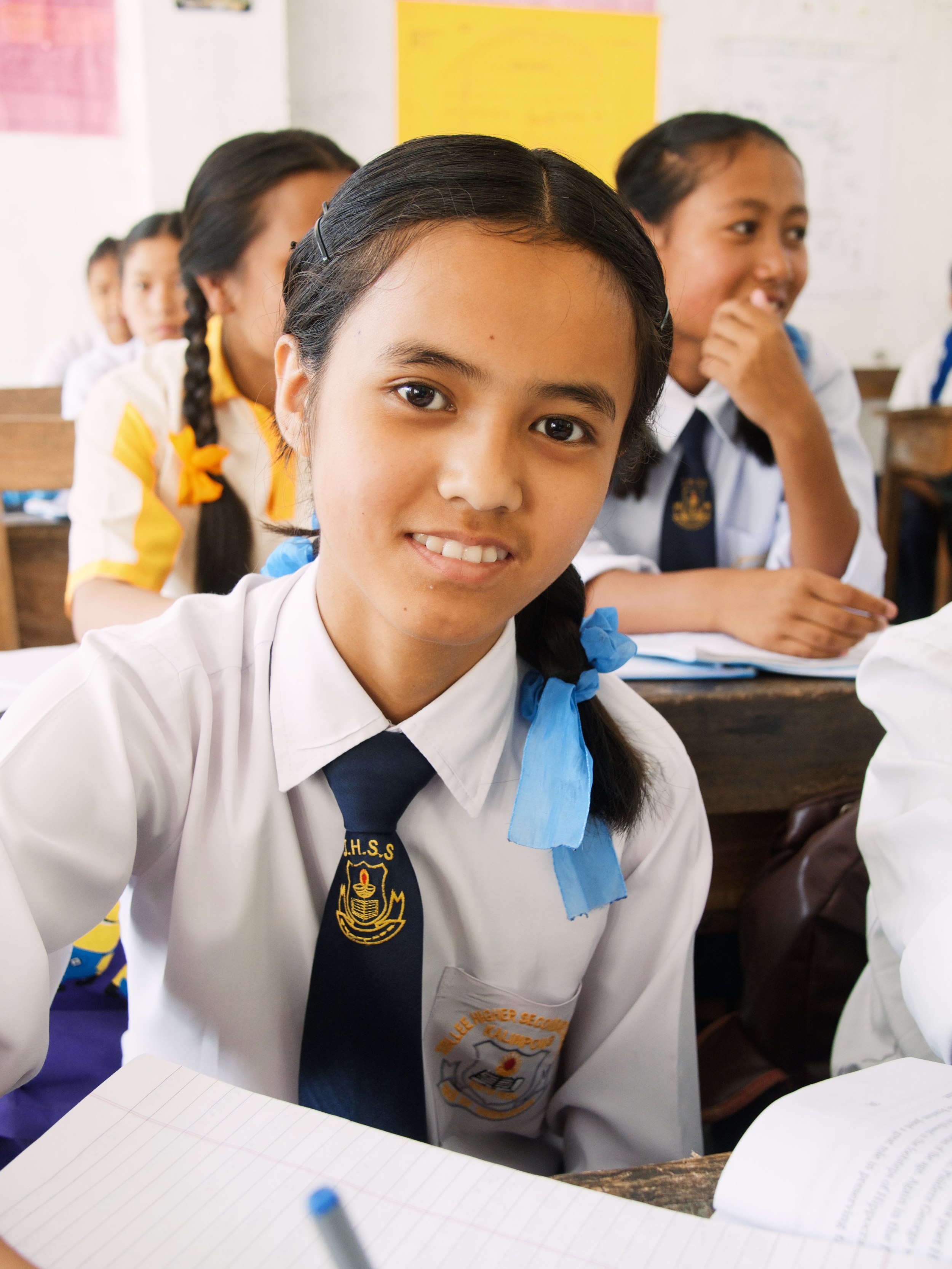
After hanging at Jubilee and taking videos and photos in our kids' classes, we headed to the Asia's Hope school for more footage, but also some fun and games. The school is in a rented building (we'd love to have our own building some day -- more on that later...), but is very well suited to the needs of the nearly 100 Asia's Hope elementary-age students who study there.
We have a large concrete playground, about the size of a basketball court. This is extremely unusual in this part of India, where everything is built into the side of a mountain, and flat land is at a premium. We enter the campus as road-level, and then descend along a steep, curving driveway. The property consists of the playground, two wooden outbuildings and a large, three-story brick building. The school occupies the ground floor of the large building and one of the smaller wooden structures. Our Kalimpong 2 home occupies the second story, and the landlord's family lives on the top floor. (Whereas all of our homes in Cambodia and Thailand are single-family structures, I think that in Kalimpong's land-scarce and expensive real estate mountainside real estate market, building in this town will mean stacking our homes in the fashion of the locals.)
Even though Asia's Hope is primarily dedicated to providing family-style homes for orphaned children, I really love this school. Our headmistress, Mrs. Wang Lamu, is an experienced educational administrator whose firm, yet grandmotherly bearing earns the respect and affection of our kids and staff alike. Our teachers are young and energetic, and so patient with our kids.
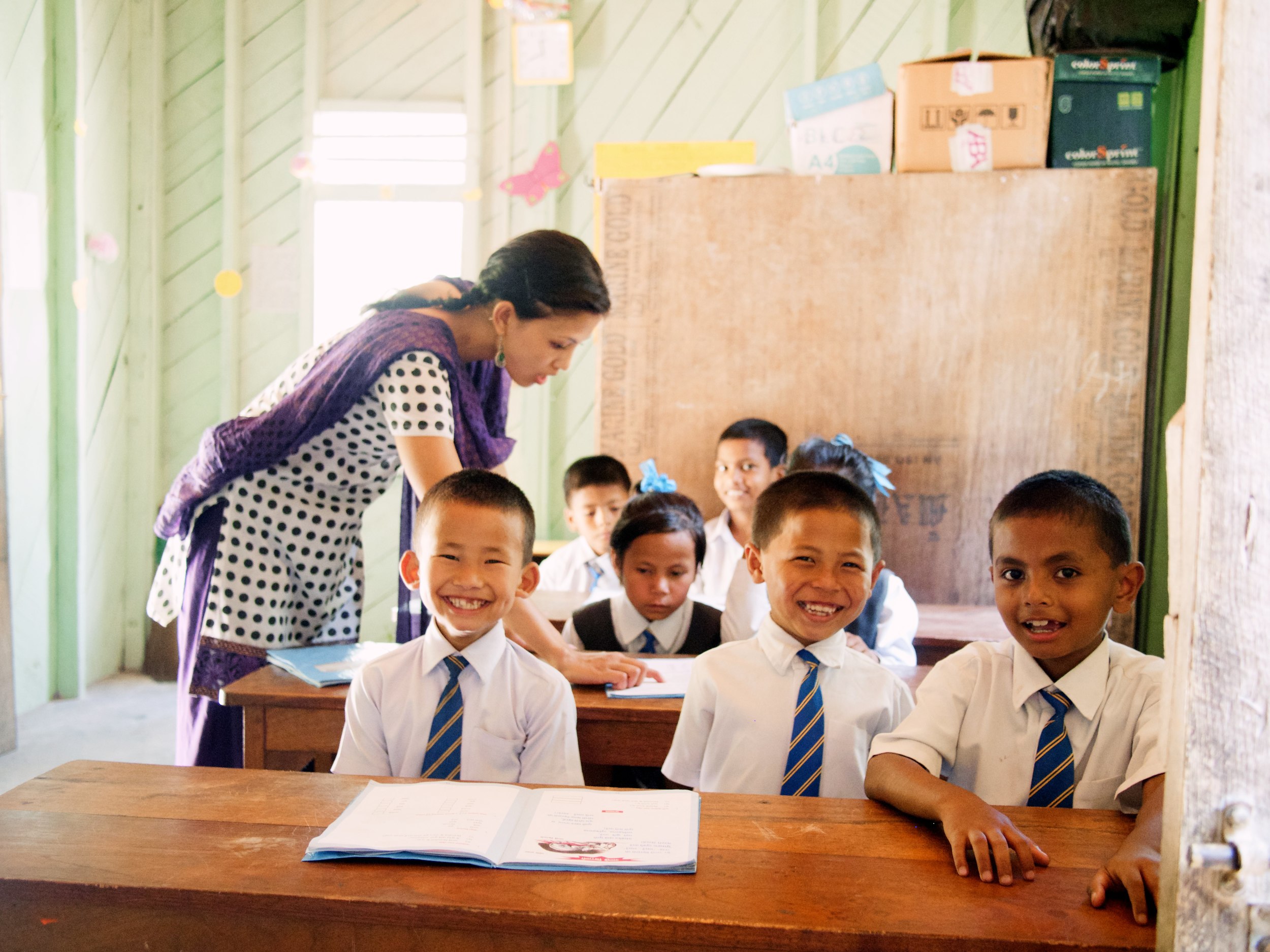
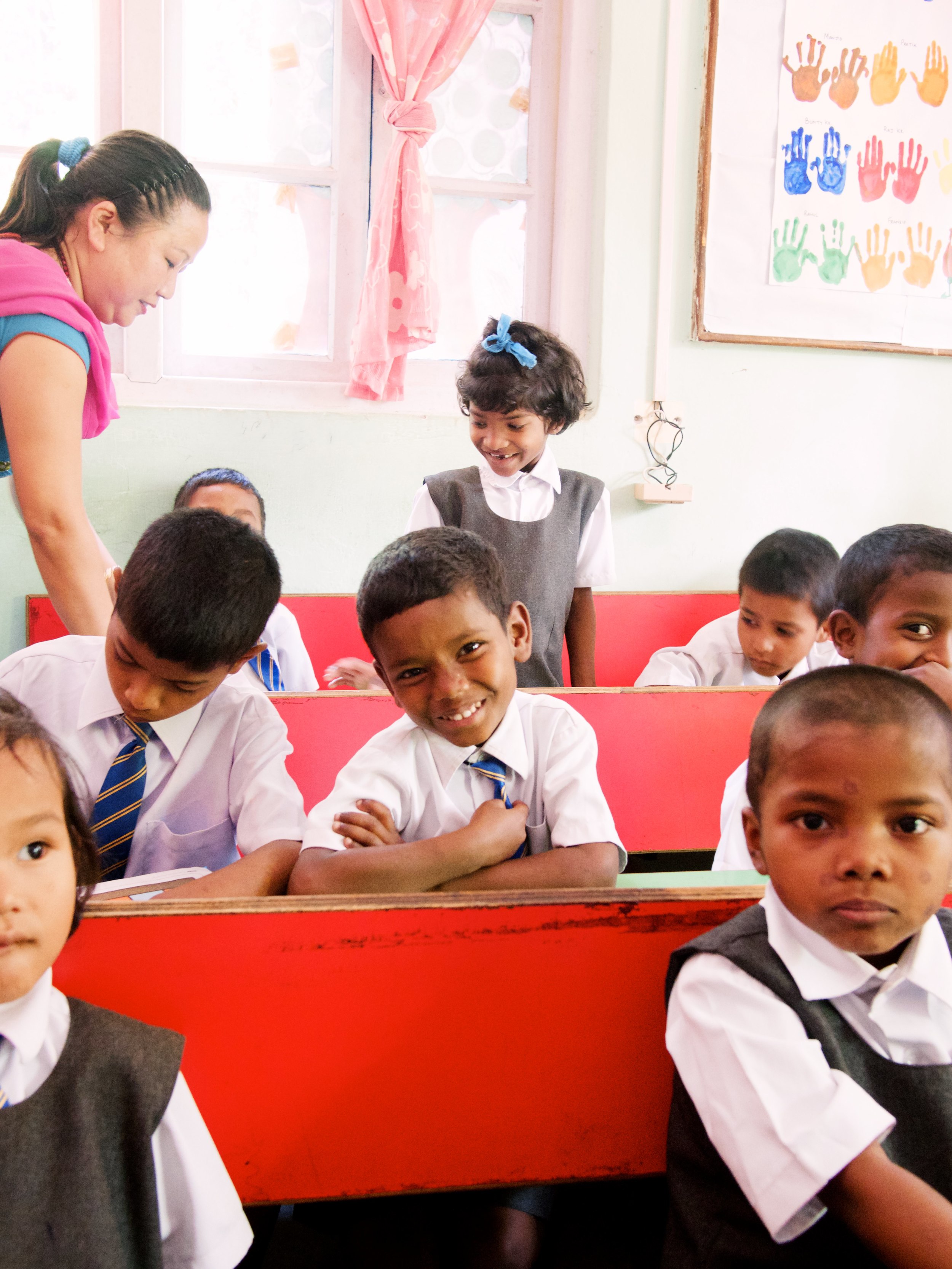
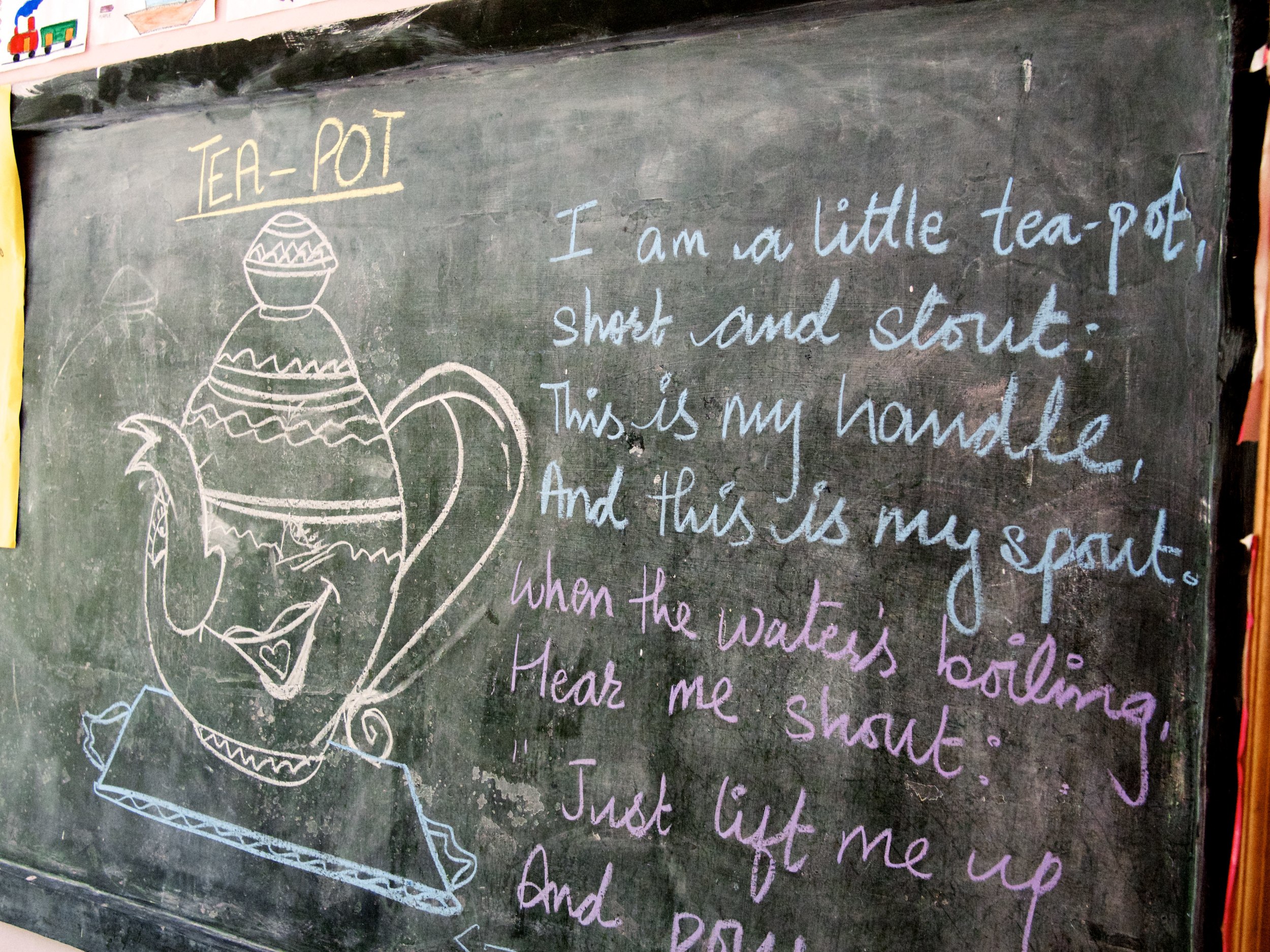
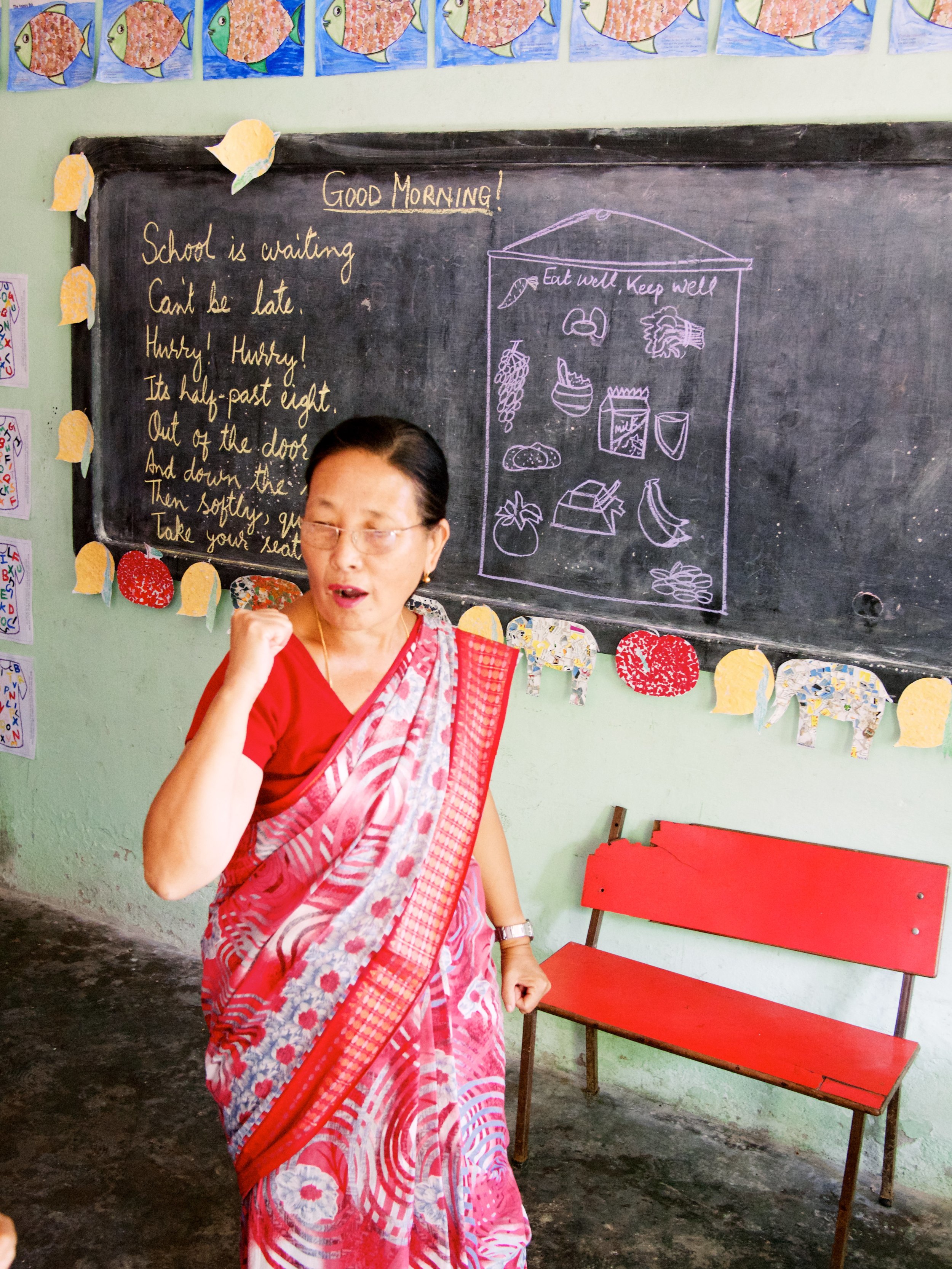
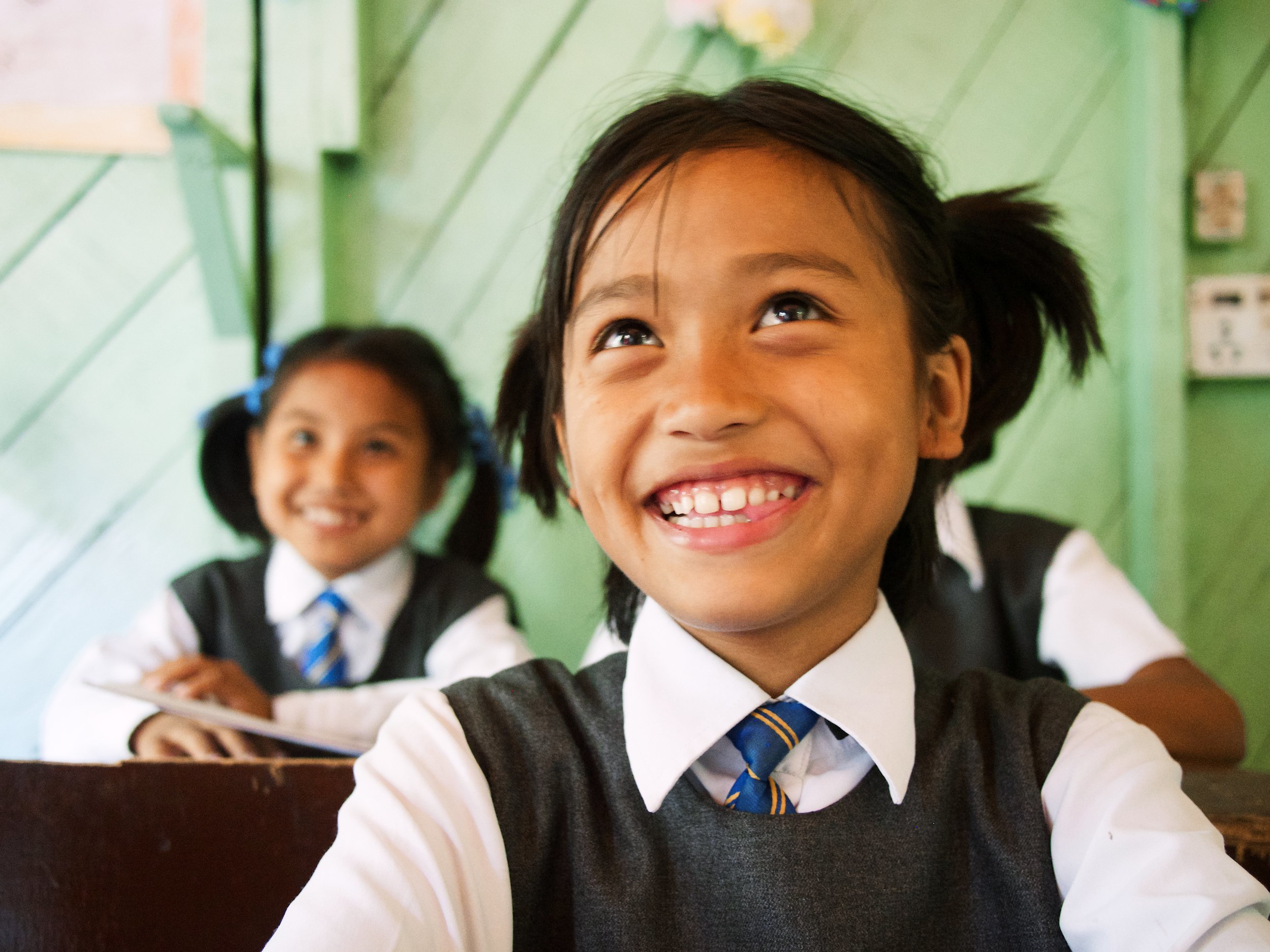

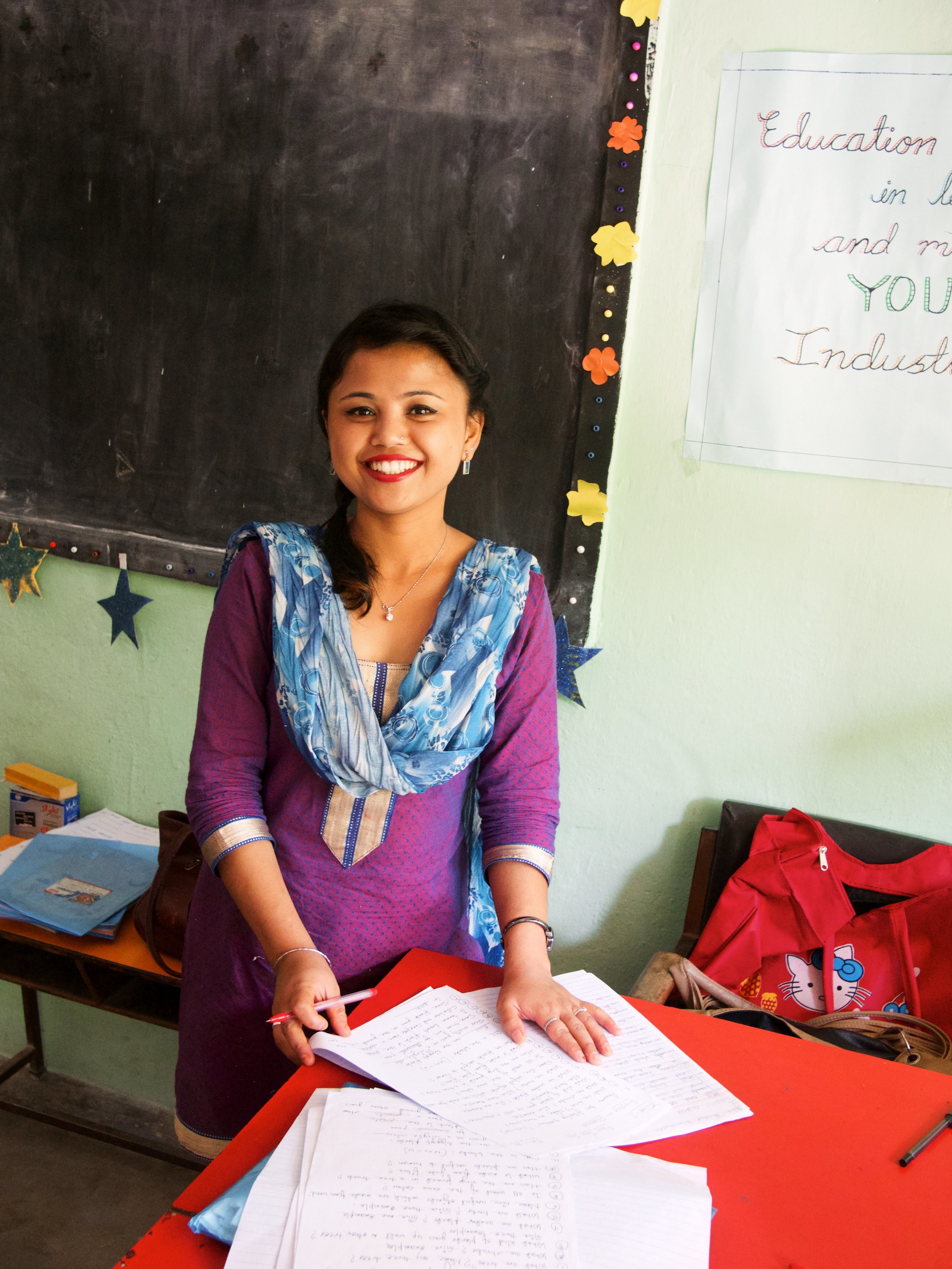
And patience is definitely required in this job. As Mrs. Wang Lamu told us yesterday, when these kids first come to Asia's Hope, they come in as orphans. Some have lived on the street, some have been abused. Some have lived in bus stations, others have lived in brothels. Many of the children have no idea how to sit in a chair on their first day of school, some have only received their first-ever pair of shoes only days before. At first, reading, writing and 'rithmatic are simply out of the question. In some cases, they don't even know how to use a toilet -- they'll just wander outside to go potty; sometimes they'll even do it in the classroom.
But in a matter of months, the new kids learn from their peers, and from loving teachers and parents, and before long, they're actually learning. Our kids stay at the Asia's Hope school until they're ready to transition into local schools. And when they do, they're poised for success. Some of our kids at Jubilee High School are among the top in their class! It's amazing what progress a child can make when they're in a school and a home that is designed around their needs.
So while politicians in the States claim to leave no child behind, that's a reality at Asia's Hope. Rather than forcing our kids into a learning environment in which they cannot succeed, we work hard to create and maintain one that ensures each child gets the care they need to learn and grow and thrive.
Like our elementary school in Prek Eng, Cambodia -- and unlike each of our children's home -- the Asia's Hope school in Kalimpong, India has no permanent sponsorships. We fund this school out of our general budget, the same budget we rely on for medical emergencies, home repairs, staff salaries and other recurring needs. Please pray for our two schools. And if you want to participate financially in the operation of these schools on a one-time or long-time basis, I'd love to hear from you!

